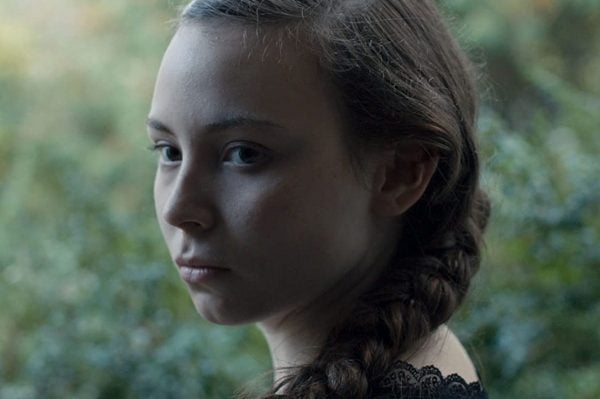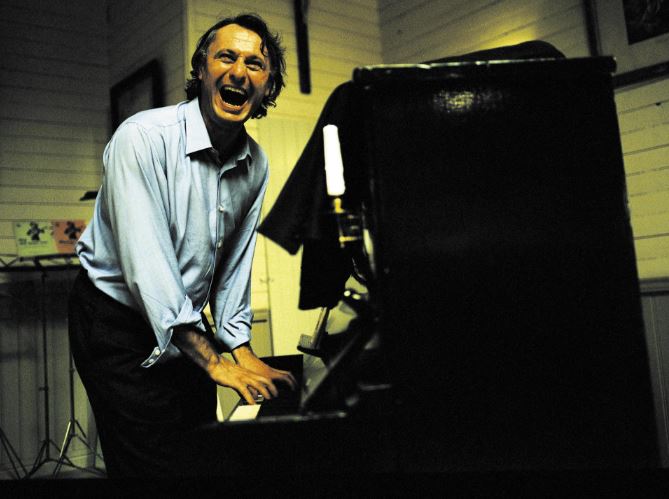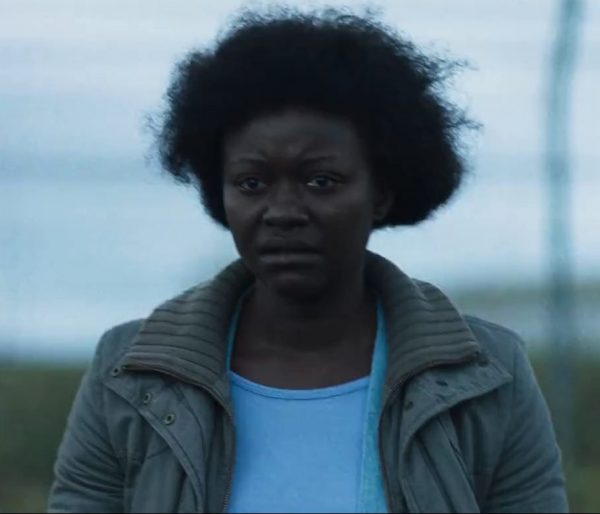50 Best Scandinavian Movies to Watch Now
The region may be ice cold, but Scandinavia has produced some of the most heated films in recent years. There are heart-racing epics from Denmark (many starring the great Mads Mikkelsen, not that we’re complaining), heady romantic dramas from Norway, and bloodcurdling avant-garde films from Sweden. Whether you’re interested in learning more about the culture or already have a penchant for it, we’re sure you’ll find something to add to your “to watch” list in our roundup of the very best Scandinavian movies you can stream right now.
Jump to the top 10:
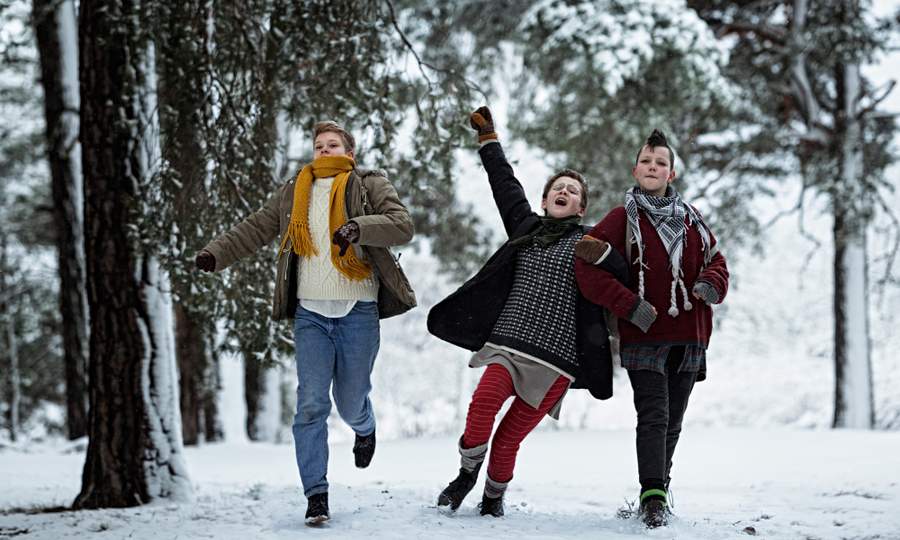
We Are the Best! is one movie that may be overlooked largely by viewers, though it perfectly captures counterculture, and relates to the misfit young and old. The movie is an adaptation of Moodysson’s wife Coco’s graphic novel “Never Goodnight”. Set in Stockholm, Sweden in 1982, Klara (Mira Grosin) and her best friend Bobo (Mira Barkhammar) are junior high teenage girls who believe in their heart that punk rock is alive and well. With both of their home lives not so pleasant, the girls spend their time at the local youth center while taking up the time slot in the band room to get revenge on the local metal band. That’s when they find themselves starting a punk band without even knowing how to play an instrument. We Are the Best! is a fun and deeply sincere exploration of adventure, friendship, love, and betrayal in adolescence.
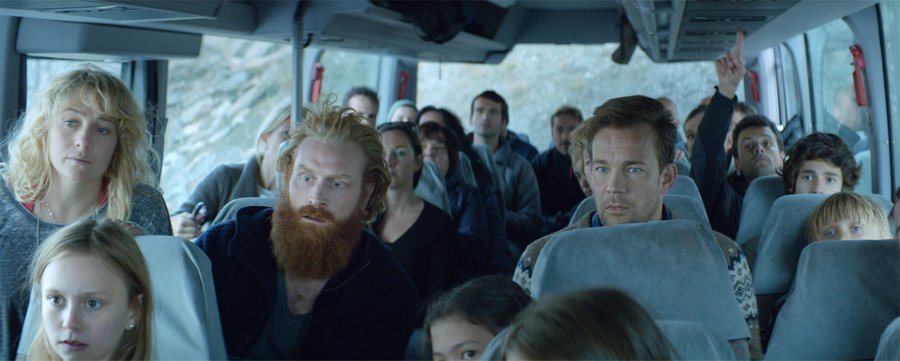
A seemingly well-adjusted Scandinavian Family vacationing in the French Alps experiences a frightening avalanche scare near the beginning of Force Majeure, thereby unleashing a cacophony of mistrust and anxiety as their dynamic is shaken to the core. This pitch black comedy from Sweden charts the steady disintegration of the family unit and the father’s psyche in particular, as his reaction to impending death leaves his family deeply questioning his masculinity and prioritization of their well-being. The stages of blame and negotiation play out with painful honesty, holding back very little in a manner that leaves the viewer supremely uncomfortable, as if eavesdropping on a neighbor’s personal affairs. The effect is unsettling yet stunningly honest and often laugh-quietly-on-the-inside worthy in its depiction of human vulnerability. Unlike many narrative films, the “climax” comes at the beginning of Force Majeure, with the remainder of the film acting as an extended denouement in the form of a measured, Kubrickian character study.
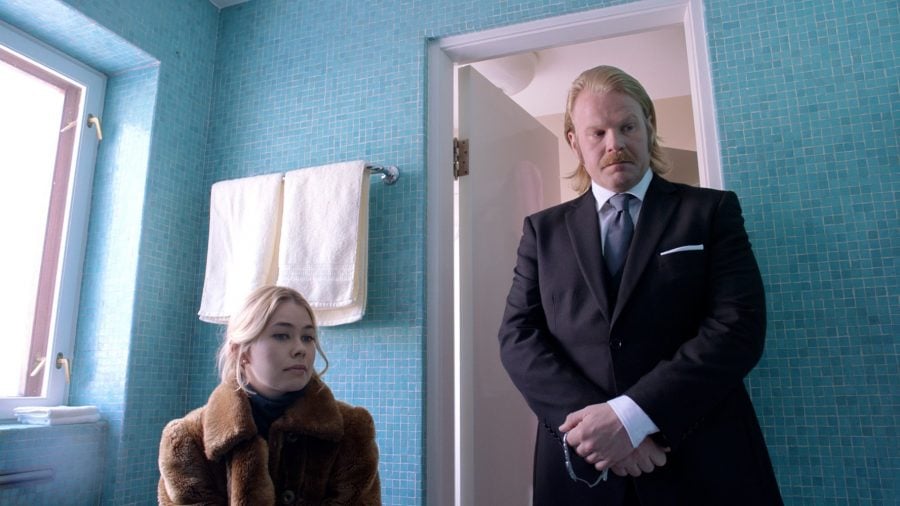
This movie is pretty much in every regard a Norwegian Kill Bill. It’s a dark gory comedy where, naturally, the substitute for Uma Thurman doing damage is an emotionless Stellan Skarsgård.
After his son is killed by a drug gang, Skarsgård’s character, fresh off a win of a “citizen of the year” award, embarks on a ruthless journey to track and kill the murderers. This takes place in one of the most remote areas in Norway, where the main character works as a snowplow driver. You guessed it, some people will get snowplowed.
Seems familiar? That’s because this year it was turned into a horribly sub-par American movie called Cold Pursuit, with, ugh, Liam Neeson.
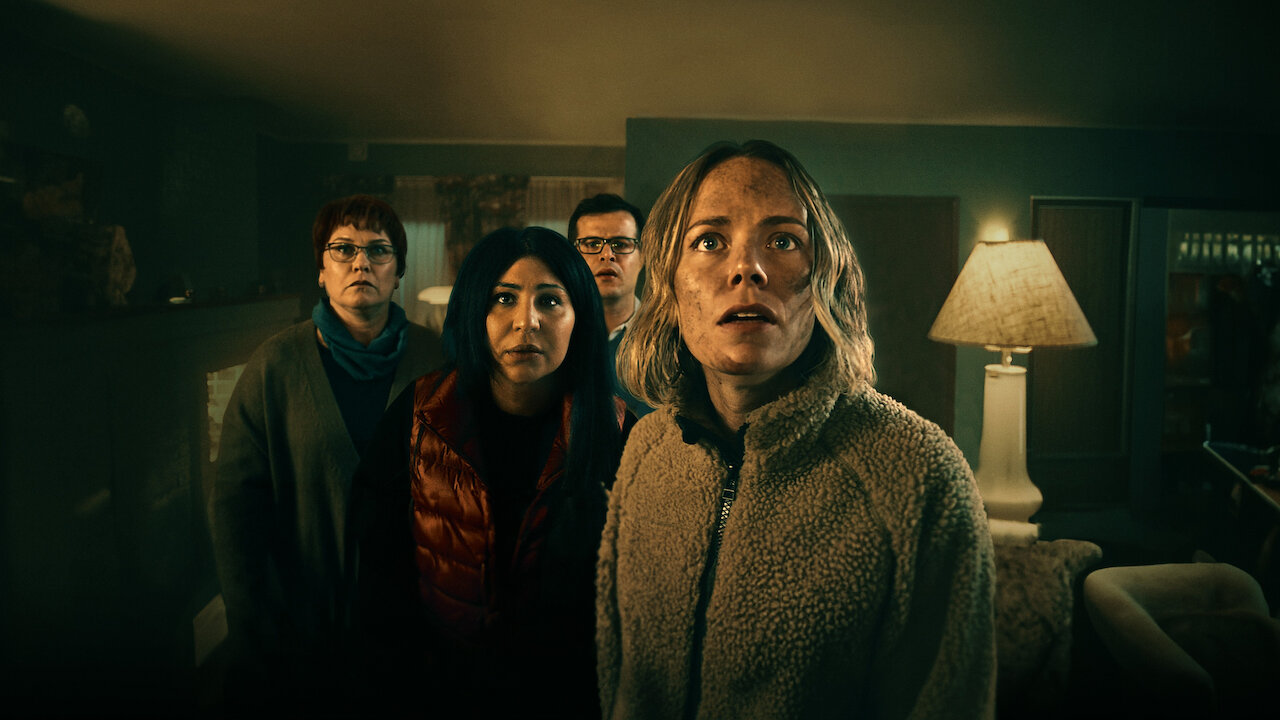
Familiarity breeds contempt, and Swedish Netflix’s new horror-comedy takes this idea to the extreme. Based on the novel by Mats Strandberg, who’s known as the Swedish Stephen King, The Conference is centered around a group of employees on their company retreat. With its ensemble, the film crafts a relatable dynamic, with the exact petty back-and-forth and the same exact corporate politics many adults have to deal with. It’s no wonder one of them snaps, and takes them out one by one. The film isn’t exactly new, with the decades’ collection of slashers all over the world, but this Swedish thriller is a fun take on it, with match cut transitions, quick paced sequences, and the gruesome murders of the group most adults spend time with – their colleagues. It’s an interesting watch as the world gets back to the office.
Heavy Trip is a comedy about a heavy metal band, but unlike many mainstream portrayals, it doesn’t dismiss the genre and its fans as overly aggressive, overly serious, or satanic. Instead, these misfits are endearingly goofy. While they growl over their frustrations, they’re totally sincere about their passion, willing to headbang even in the places they earn their living. So when they finally get a chance of a lifetime, it’s so easy to root for their success in spite of all the things that go wrong (maybe even because of all the ridiculous incidents that happen). While it won’t be the smoothest watch for non-metal fans, Hevi Reissu is a crowdpleaser. Just make sure to prepare your ears.
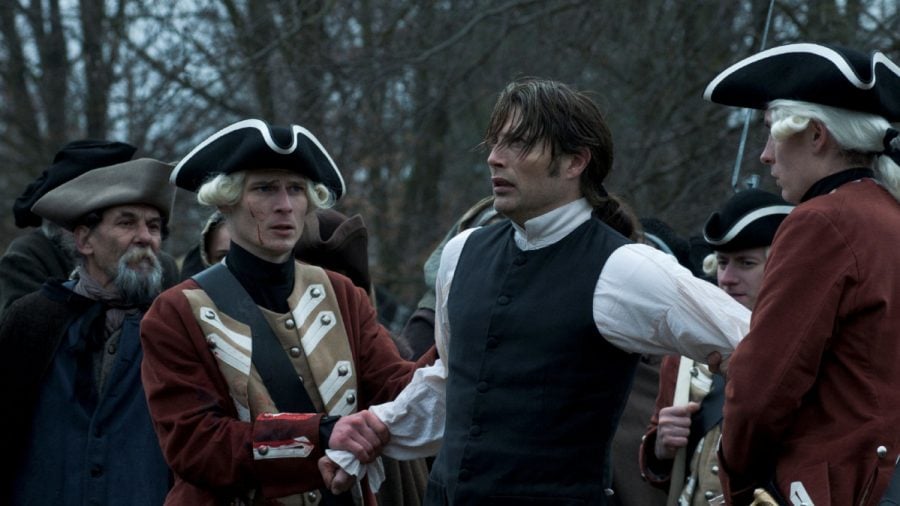
If you’ve been paying close attention to Royal Families in general, then get a snack and settle in, because A Royal Affair’s got it all for you: the steamy scenes, dirty, affair-laden hands, the corsets, and a stunning backdrop of 18th Century Europe. Quite literally deranged and mentally incapable King Christian of Denmark (Mikkel Boe Folsgaard) marries the brave Princess Caroline of Great Britain (Alicia Vikander), only to find out that he isn’t cut out for the wedded life. Enlightenment comes in the form of Dr. Johann Struensee (Mads Mikkelsen), a German physician to the infantile King and true-born reformer. Mostly saddened by her unfortunate fate, the now-Queen Caroline finds herself falling in love with the intellectual; thus, beginning a whirlwind of events that shakes up the entire Kingdom.
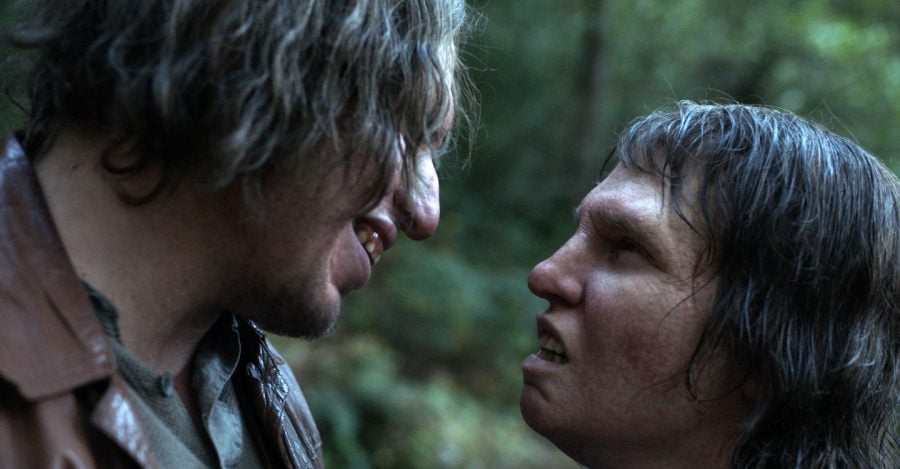
If you like: weird movies and / or Scandinavian mythology, this movie is for you. It’s about unusual looking border agent with super-human abilities (such as smelling fear and shame) who meets someone like her for the first time There is a big revelation in Border that I can’t share but while this movie was directed by an Iranian (Ali Abbasi), it’s deeply rooted in Swedish folklore. Themes of identity, gender, and otherness intersect through a thrilling script and beautifully-shot nature scenes.
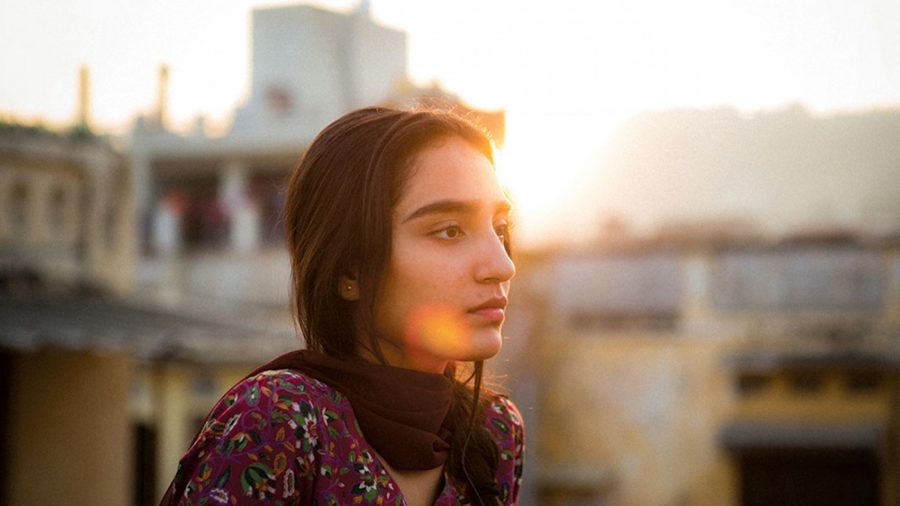
Nisha, the daughter of conservative Pakistani immigrants in Oslo, finds ways to secretly go out with her Norwegian friends. She goes to parties, plays basketball, and dates.
One day, Nisha’s father catches her with a boy, bringing what he perceives as a great shame to the family. Nisha’s delicate balance is broken, and her family acts drastically: without telling her about their plans, they move her to Pakistan.
What Will People Say is based on its director and writer Iram Haq’s own experience being kidnapped to Pakistan and going back to Norway at age 16.
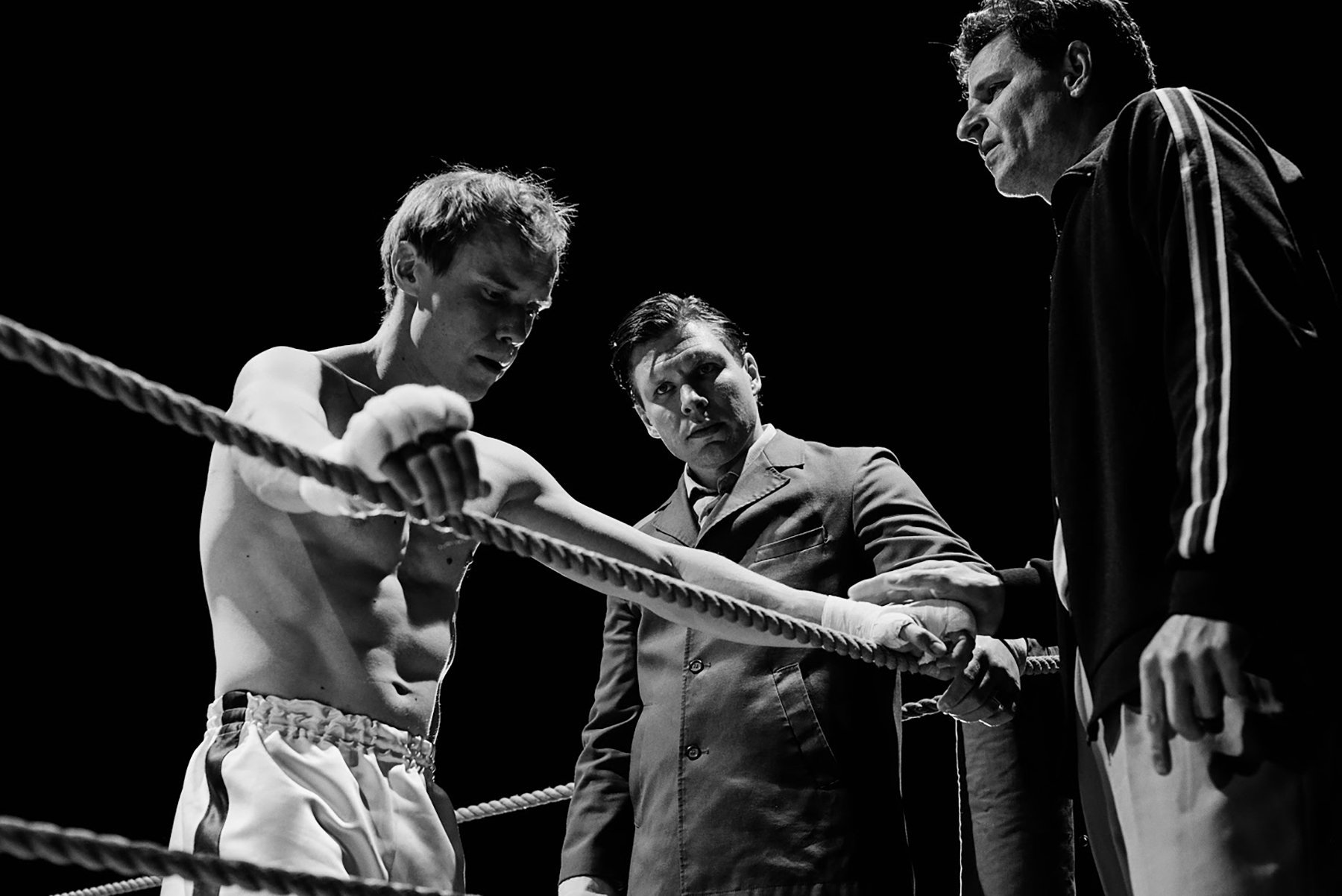
Most sports biopics are centered around winners– their drive, their spirit, and their determination to beat the competition, and maybe win some glory for their respective teams, hometowns, or countries. The Happiest Day in the Life of Olli Mäki instead focuses on a Finnish boxer that lost a match. Shot in 16mm black and white film stock, writer-director Juho Kuosmanen captures the man, not the legend, in sequences that feel like decades-old memories that draws you into his story, his humble character, and the motivations that drive him, a yearning for love rather than bragging rights, trophies, and nationalistic pride. It’s such a charming twist to the genre, one that recognizes a different kind of masculinity. While Mäki might not be the world’s best boxer, this film suggests that he might be one of the happiest, forgoing an important match for a marriage that ended up lasting his lifetime.
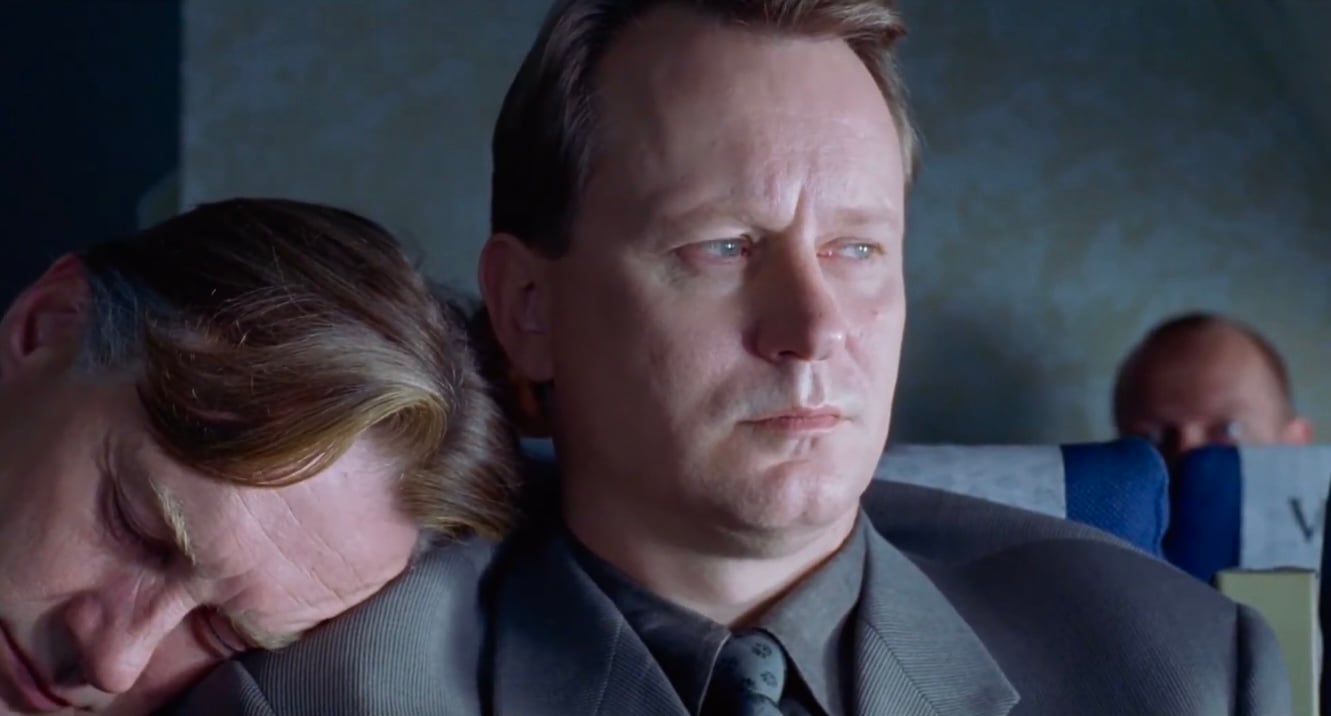
In a few seconds, a mistake can change your life forever. Insomnia is centered on a Swedish detective trying to solve a murder while trying desperately to cover a mistake made from the difficult mix of the fog and human exhaustion, but in doing so, his guilt, shame, and suspicion that no one would believe him due to past mistakes, weigh down on him, twisting the police procedural upon itself. Stellan Skarsgård holds an incredibly restrained performance throughout the entire film, and it’s well-framed by writer-director Erik Skjoldbjærg, whose use of cold white light in this debut feature eventually became the staple of on-screen Scandinavian noir.
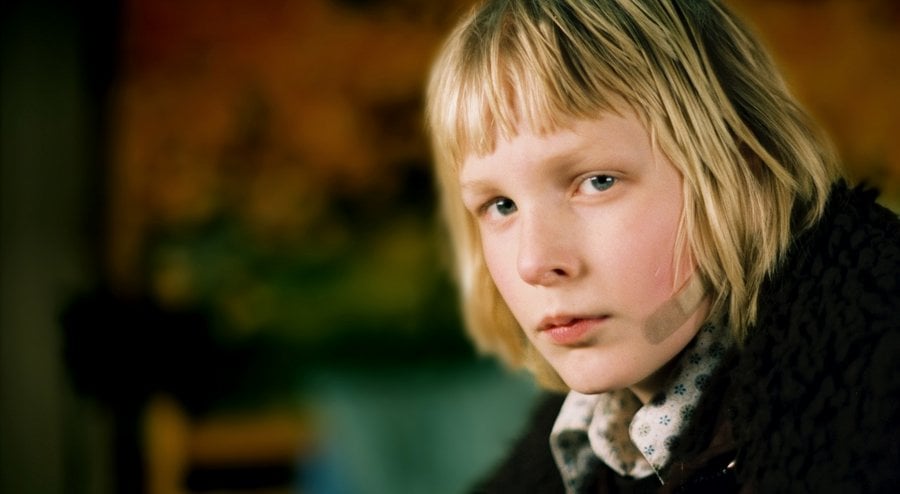
Somehow an art house film, horror, and romance all in one, Let the Right One In explores the boundaries of its genres with unprecedented finesse, and offers a stunning alternative for those disappointed with recent vampire love stories. From its haunting minimalist imagery to its incredible score, it is persistently beautiful. The film follows twelve-year-old Oskar and Eli, drawing on numerous aspects of traditional undead lore, and still manages an impressive feat in feeling entirely fresh and devoid of cliche. Those in search of a terrifying movie might need to look elsewhere, but if what you’re looking for is simply a great watch, don’t pass this one up.

A War (Krigen) is a Danish war drama that focuses on Commander Claus Pedersen (Pilou Asbæk) as he leads a company of soldiers in modern day Afghanistan, while his wife at home in Denmark struggles to care for their three children. During a mission to rescue a family from Taliban threat, Claus’ unit is overcome by enemy fire, forcing him to make a dramatic decision that has a complicated effect upon himself, his fellow soldiers, and his family back home. A War is a tense yet thoroughly involving drama that offers a profound example of moral ambiguity and the repercussions of warfare. The acting and direction are utterly superb across the board—another enthralling and superbly humanistic affair from Danish filmmaker Tobias Lindholm (A Hijacking).
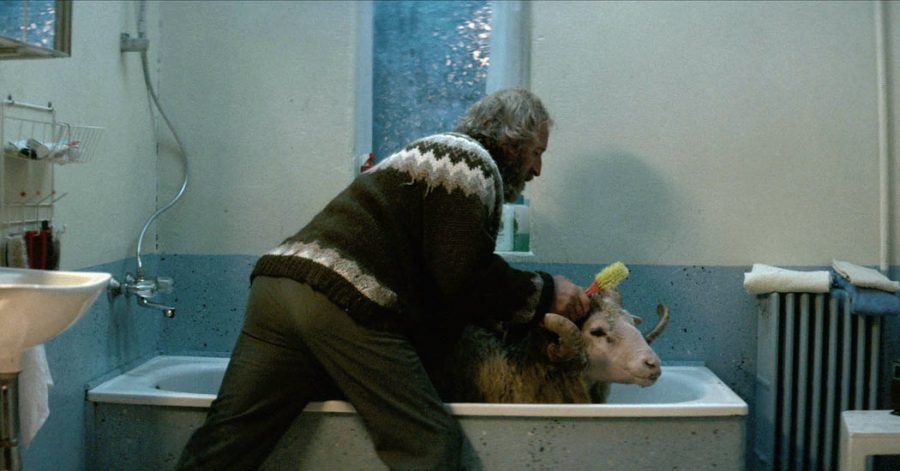
I always seek out Icelandic films; something about the quality of light and quirky sensibility that appeal to me. Having developed a fondness for sheep on a recent Welsh trek, “Rams” had a double attraction. A tale of brothers divided by life but ultimately united in and by their deep, tender, inspiring love of their rams. Close to perfection. Sigurdur Sigurdurjonsson is luminous in the lead role.
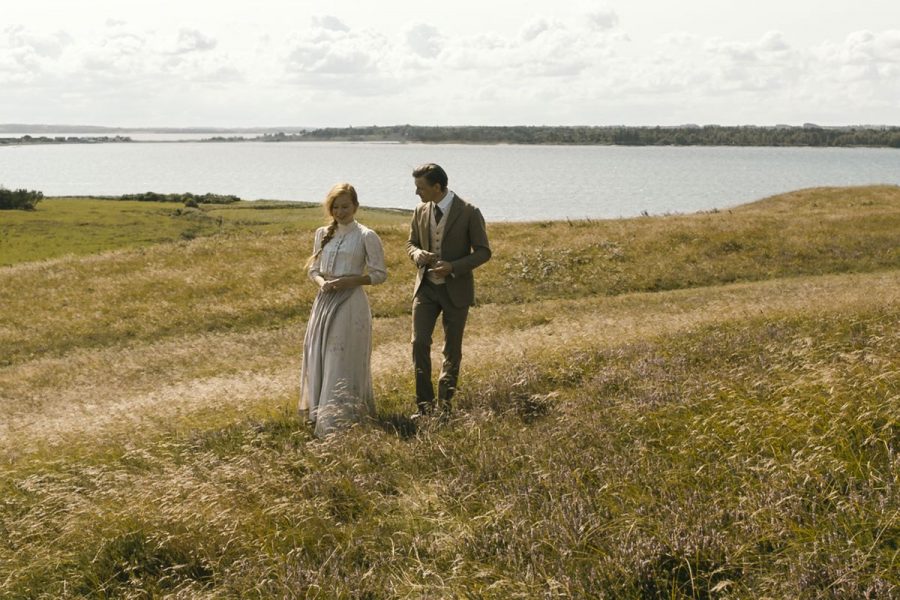
This is a gorgeous Danish period drama that’s based on a famous story and book in Denmark called Lykke-Per (or Lucky Per) by Nobel Prize-winning author Henrik Pontoppidan.
Per, the son of an overbearing catholic priest, leaves his family house in the country side to seek a new life in Copenhagen. His passion about engineering was at the time contrary with the Christian faith, but manages to introduce him to the capital’s elite, and a chance at social ascension.
Lykke-Per and A Fortunate Man are about nature versus nurture. Per’s passion about engineering and renewable energy (back in the 1920s) is set against his need to emancipate and the pride that was instilled in him by his upbringing.
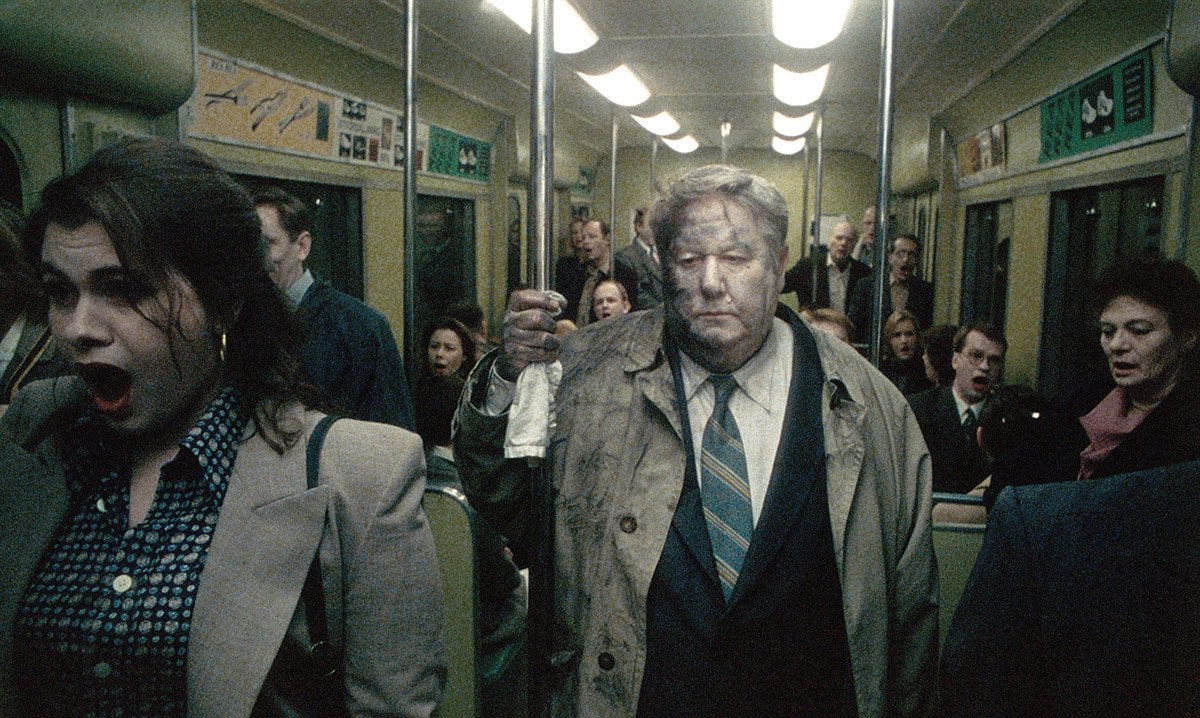
We’ve seen anthology films with three, four, sometimes even five parts, but Songs from the Second Floor comprises forty six separate vignettes, quickly shifting in and out without any connecting thread inbetween, except for the dull gray color palette. Yet, even as the film abruptly transitions between vignettes, from tanning beds, construction sites, cars, trains, or buildings, writer-director Roy Andersson crafts meticulously framed breakdowns of modern day living, some of which works based on individual experiences, but all coming together as several miniature portraits of how absurd and depressing our lives have become. Songs from the Second Floor is a bold way to return after a twenty five year hiatus.
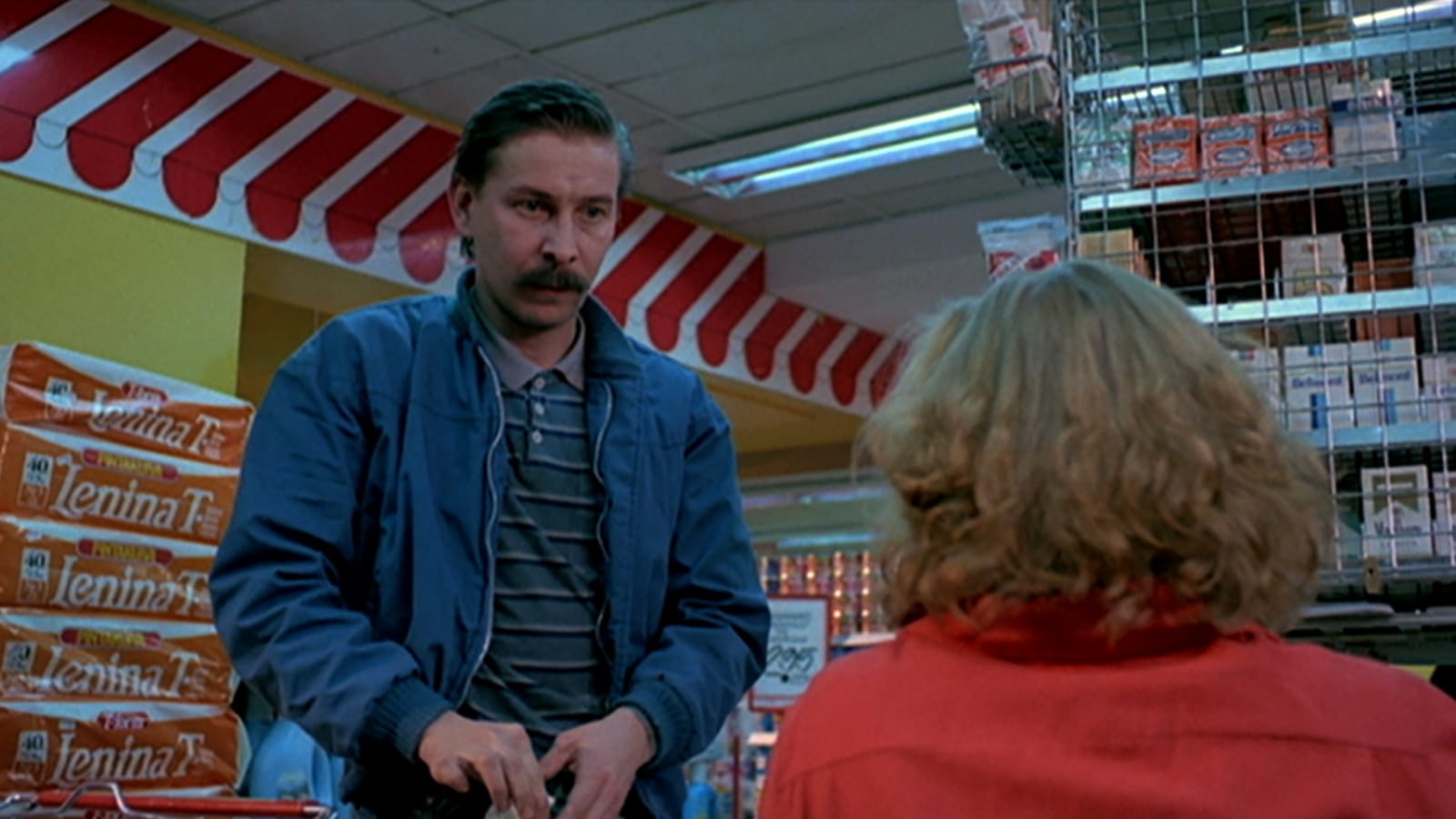
Grand gestures, over-the-top declarations of love, and elaborate gifts… These normal romcom acts can sometimes make it seem that romance can only be done by the wealthy. But, in reality, love can happen anytime, and the first film of Aki Kaurismäki’s Proletariat Trilogy suggests that love is ultimately necessary in a world where two lovers are disenfranchised. As Nikander tries to woo a slightly disinterested Ilona, and as Ilona decides to depend on him for support, Shadows in Paradise might not have the usual frills of a romcom, but Kaurismäki finds the bare essentials in a depressing Finnish town, and captures the small ways it blooms in spite of it, through the lovers’ humorous blunt dialogue and the color their love adds to their world.
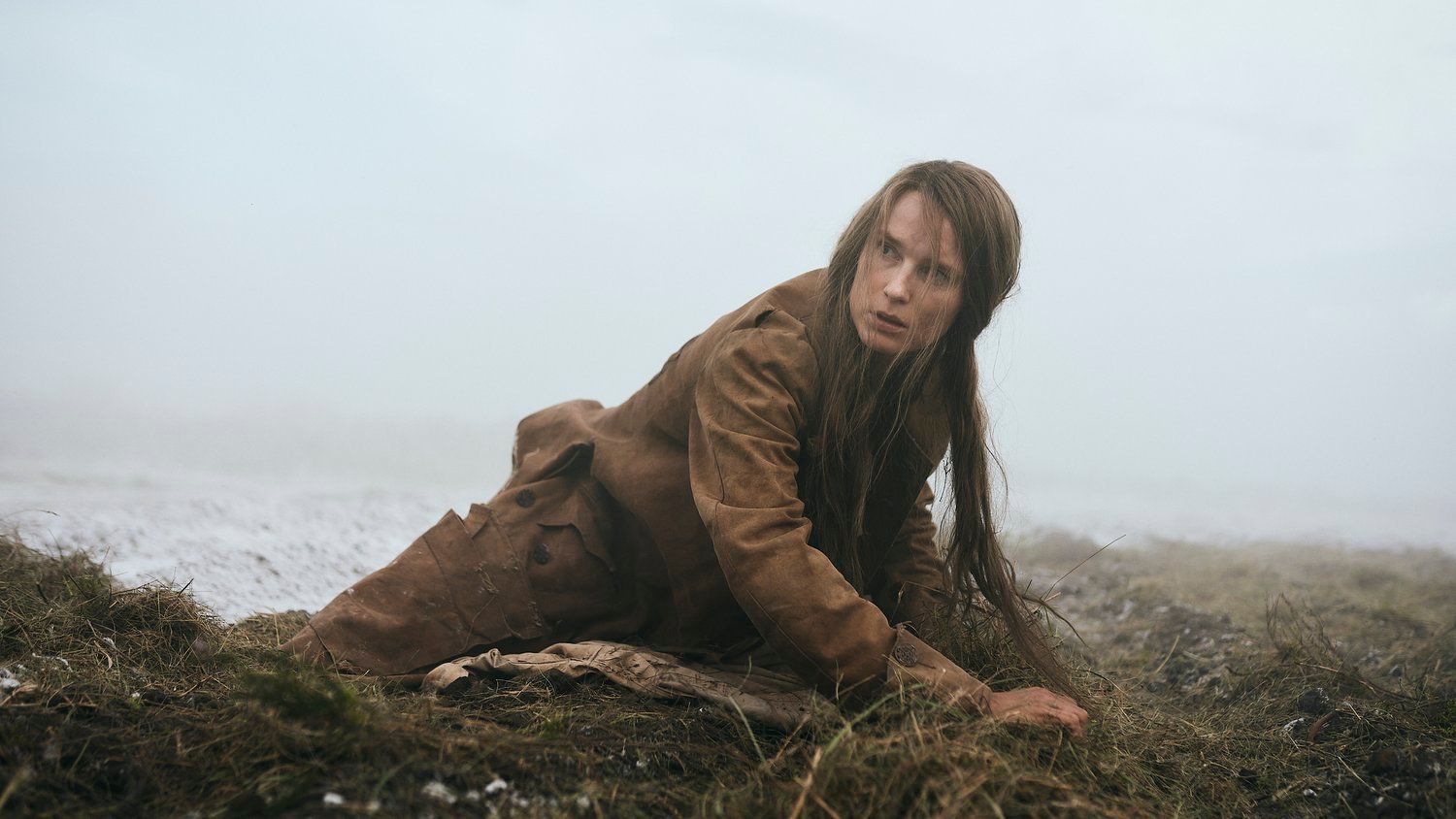
In The Promised Land, director Nikolaj Arcel (A Royal Affair) and Mads Mikkelsen reunite to create another intense, enjoyable drama based on true historical events. Mikkelsen is reliably gripping as Captain Ludwig Kahlen, but it’s his back-and-forths with the diabolical landowner Frederik Schinkel (Simon Bennebjerg) that are the standout scenes here. And though The Promised Land resembles modern Westerns in its macho standoffs and sweeping backdrops, it has a surprising and satisfying feminist bent to it. It’s a historical epic that doubles as a revenge thriller and succeeds in both cases.
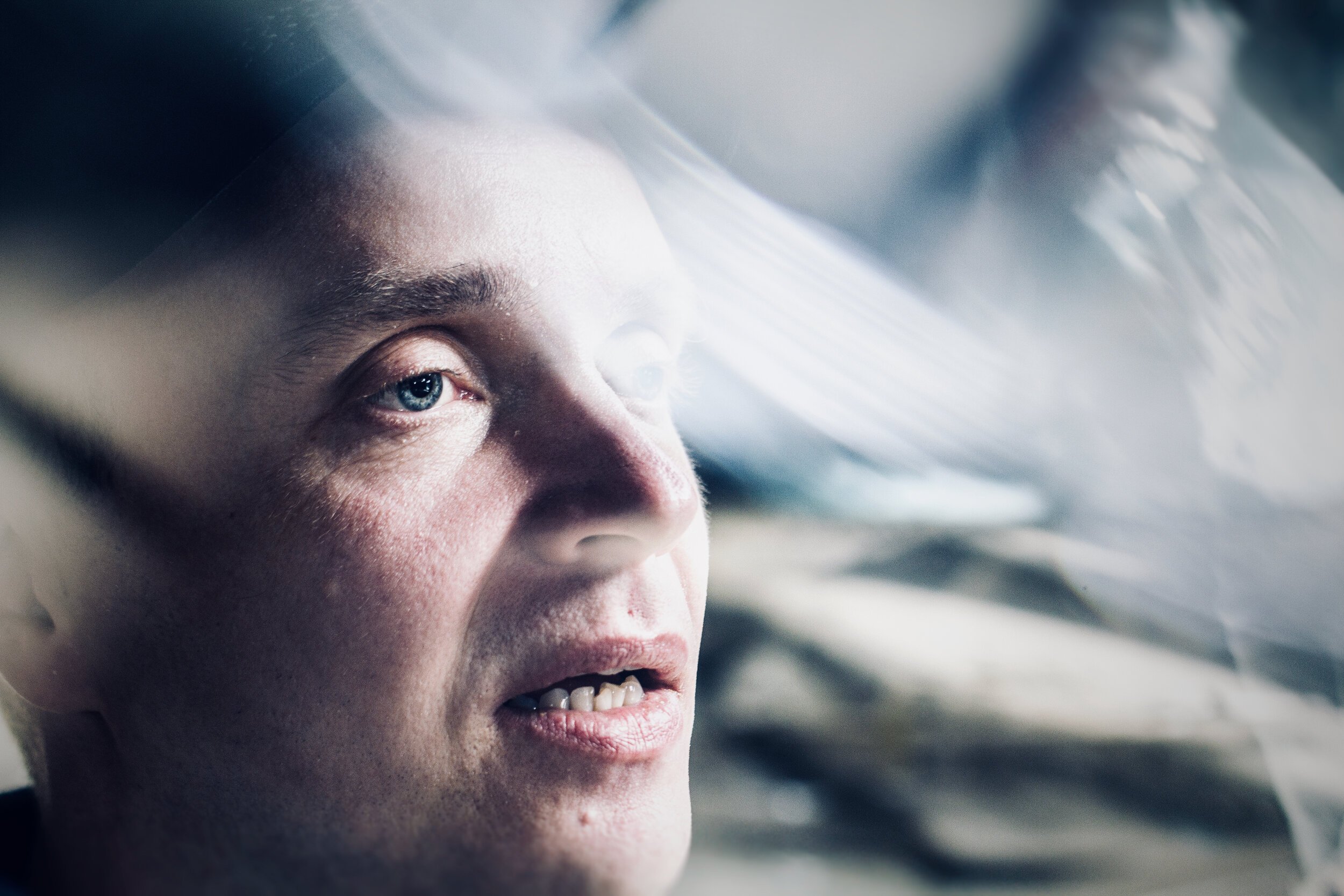
You’ll probably never find a film like The Blind Man Who Did Not Want to See Titanic. The camera is blurry, with lead Petri Poikolainen’s face the only image we see clearly. The audio sometimes goes in and out. There’s even a section that turns completely dark. While this would usually mean that something is wrong with the tech screening the film, it’s actually a brilliant way to immerse the viewers in Jaako’s experience, heightening the stakes of what should be a simple commute into a unique thriller comedy-drama. The Blind Man Who Did Not Want to See Titanic is truly an original film.
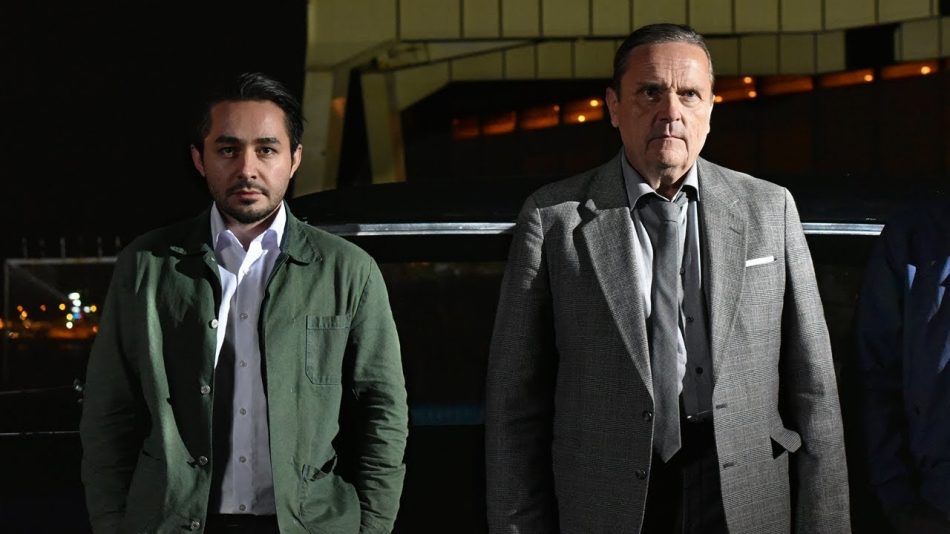
Finnish director and megastar Aki Kaurismäki hits with yet another absurd but poignant movie. The Other Side of Hope is about a Syrian refugee and his journey across Finland, both the country and the culture, in hopes for a fresh start. It’s a genuine and simple movie, played masterfully by a cast of newcomers. But in its simplicity, it elicits empathy on a subject that most of us choose not to dwell on nowadays. Aki Kaurismäki has the unbelievable skill of distilling tragic events into their humane component. A movie to give credit to, and to watch without any prior expectations – unless you’re familiar with Aki Kaurismäki’s previous work.
This coming-of-age story starts in the present time, where Elle Marja, now a grandmother, reluctantly goes to her sister’s funeral held by her old indigenous Sámi community in Northern Sweden. Understanding her reluctance requires going back to when Elle Marja was 14 and was preparing to go to boarding school with her little sister. These schools were racist establishments meant to integrate the Sámi children into Swedish culture and language, while at the same time limiting their prospects of seeking further education. Elle Marja and her sister chose to respond to this discrimination in two completely different ways that this movie explores without judgment. The central performance of the young girl is incredible.
There is no shortage of offensive jokes in this comedy about a man who tries to prove to his girlfriend that he is dad-material. Think Borat, but Danish, and with brothels.
The man in question tries to change his lifestyle after his girlfriend, not thinking he is responsible enough, hides the fact that she is pregnant. To prove her wrong, he takes his nephew on a canoeing trip with his equally as disastrous friend.
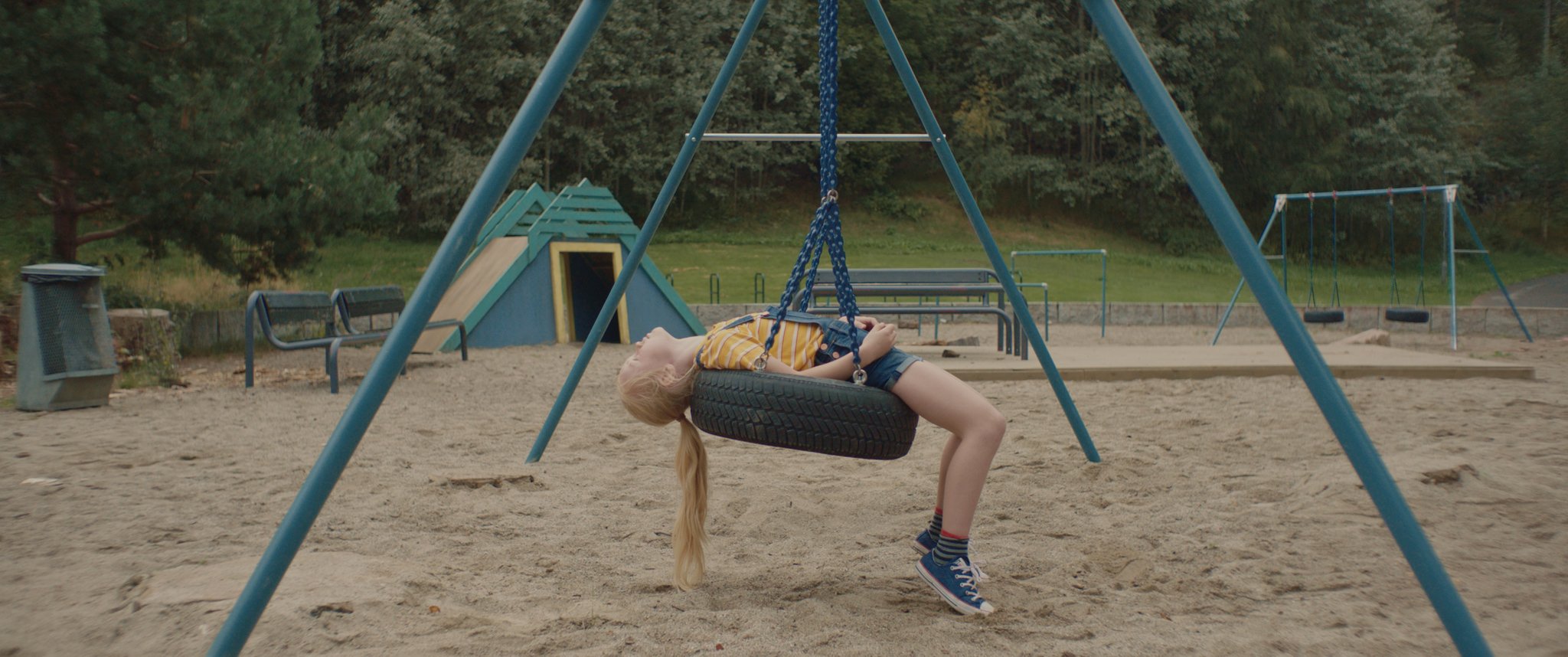
The Innocents is a Norweigan thriller that follows four kids who discover they have supernatural powers over the summer. They play around and experiment in the woods nearby, but what begins as harmless fun quickly develops into something much more disturbing and sinister.
This unnerving film, a blend of fantasy and horror, doesn’t waste time explaining the origins of its mysticism. Instead, it goes straight into action—bending, twisting, and splitting open anything and anyone that gets in its way. This kind of rawness is shocking given the age range of the characters, but it also works to subvert what we’ve come to expect from kids, youth, and goodness. The Innocents isn’t for the faint of heart, but if you can manage some bloody and unhindged scenes, then it’s sure worth checking out. Directed by Eskil Vogt, co-writer of critically-acclaimed films like Thelma and The Worst Person in the World.
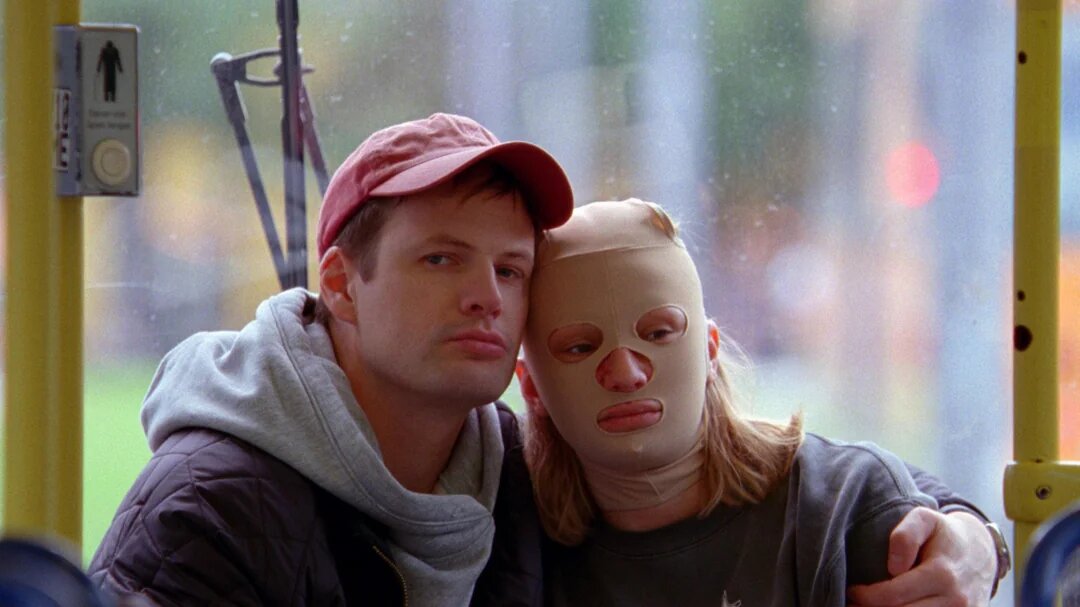
One woman’s main character syndrome reaches shocking lows in this vicious Norwegian satire of social-media-era narcissists. Signe (Kristine Kujath Thorp) and her artist boyfriend Thomas (Eirik Sæther) are a deeply toxic couple who torture everyone around them with their constant, petty one-upmanship. When he lands a flashy magazine spread, though, Signe’s usual tactics for slyly redirecting attention her way don’t cut it anymore, and so this compulsive liar takes drastic action and begins overdosing on pills banned for their serious dermatological side effects.
Signe’s Munchausen-esque actions have their desired effect: the physically dramatic results instantly make her the center of attention — but not indefinitely. As she craves increasingly bigger spotlights, the film toggles between reality and scenes from her imagination, including a morbid sexual fantasy in which her funeral proves so popular the priest becomes a bouncer, turning away sobbing mourners whom Signe noticed hadn’t visited her in hospital. The rampant narcissism on display here is at turns hilarious and excruciating: Sick of Myself’s sharp social observation skills make it feel, in places, like a movie by cringe-master Ruben Östlund. That stomach-turning effect carries through to the ending, which darkly suggests that, for someone like Signe, even narcissism itself is a condition that can be weaponized for attention.

With the internet able to connect people from miles away, the concept of the one that got away has become unromantic– after all, with instant messaging, their distance just means that you’ve been ghosted. But for the longest time, romance stemmed from the fated circumstances that kept or lost love, and this is excellently portrayed in Touch, a surprising romantic drama from writer-director Baltasar Kormákur best known for his action thrillers. Kormákur infuses the drama with a delicate touch, much more focused on the moments of connection between immigrants from different cultures, with the freedom of the late 60s that marks Kristófer’s youth versus the urgency of the world’s restrictions and Kristófer’s memory. Touch remembers the real romance of the one that got away.

Filmed as a “found footage” of a Norwegian college film crew investigating local poachers, this movie really surprised me. To be fair, I didn’t really know what to expect. But I definitely didn’t expect to like this movie as much as I did. The pacing is on point. The suspense hits you at just the right times. There are a few drops of humour trickled throughout to keep a smile on your face. And that’s how my face stayed when the credits rolled.
A Swedish film about a world-famous conductor who suddenly interrupts his career to return alone to his childhood village in Norrland. It doesn’t take long before he is asked to come and listen to the fragment of a church choir, which practices every Thursday in the parish hall. “Just come along and give a little bit of good advice”. He can’t say no, and from that moment, nothing in the village is the same again. The choir develops and grows. He makes both friends and enemies. And he finds love. It’s a wonderful movie about faith, values, and the exploration of one’s spirit.
Iceland is a country of vast lands but limited population – only about 300,000 people can call themselves Icelandic. On the other hand, 8 million people have connecting flights through Iceland every year.
In this setting of mass movement, a single mother dealing with poverty is offered a chance to turn things around – a job as a border agent. One of her first days, she comes across an asylum seeker on a connecting flight from Guinea Bissau to Canada, trying to cross with a fake passport.
Their stories don’t only intertwine as border agent and asylum seeker, but as two mothers. And Breathe Normally is about struggling with poverty both in Europe and coming from a place like Guinea Bissau. It’s a beautiful, plot-heavy statement on the importance of solidarity and of seeing the human behind the country of origin or race.
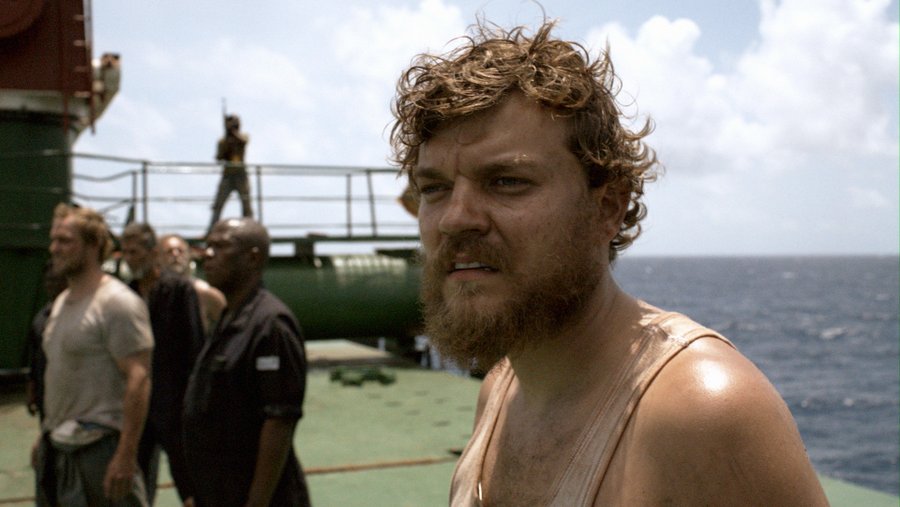
A Danish cargo ship is hijacked by Somali pirates in the Indian Ocean. The pirates demand millions of dollars in ransom and from there on, a psychological drama between the pirates and the ship owner develops, as they negotiate the price for the ship and its crew. A really great thing about this film is the fact that it doesn’t get tangled up in the weepy feelings of the families back home – but instead focuses on the shrinking hope of the ship’s crew and the psychological consequences of the brutal negotiation, that drives the ship owner to the edge of madness. Inspired by a true story. Brilliantly acted.
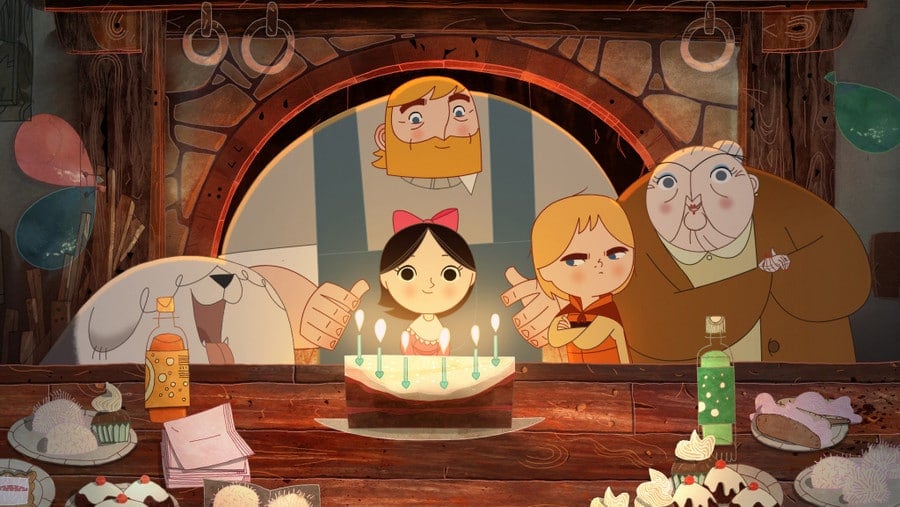
This animated movie is absolutely wonderful. It’s an Irish production, and the drawings/graphics are so beautiful and different from what you usually see in this genre. This alone, along with the music, would be good reasons to watch this.
But what really makes this worth your time is the story – it’s about a boy dealing with the loss of his mother. He embarks on an adventure into a parallel world of feelings to save his sister.
I found it to be refreshingly original, sometimes quite intense (I cried, but I easily cry), and heartwarming. The details are great. And I love the way the story was interwoven with Irish mythology, making it magical.
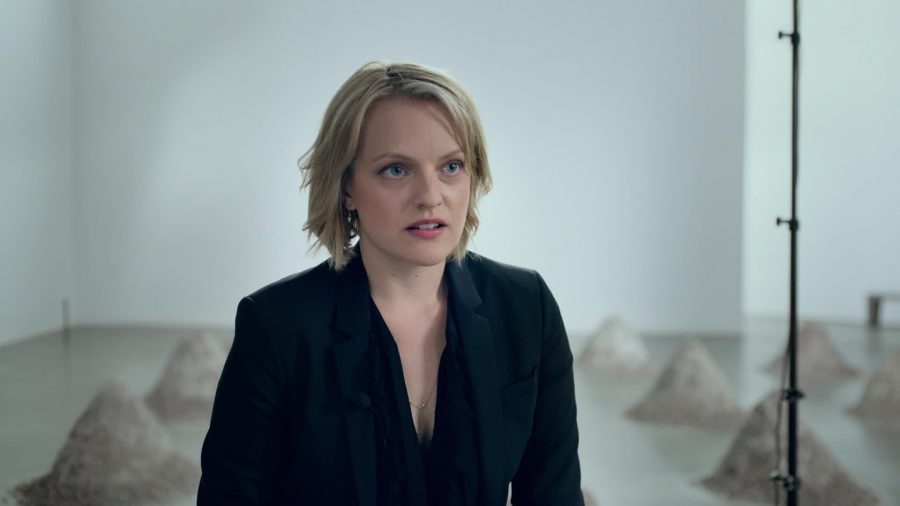
The Square is a peculiar movie about a respected contemporary art museum curator as he goes through a few very specific events. He loses his wallet, his children fight, the art he oversees is does not make sense to an interviewer… Each one of these events would usually require a precise response but all they do is bring out his insecurities and his illusions about life. These reactions lead him to very unusual situations. A thought-provoking and incredibly intelligent film that’s just a treat to watch. If you liked Force Majeure by the same director, The Square is even better!
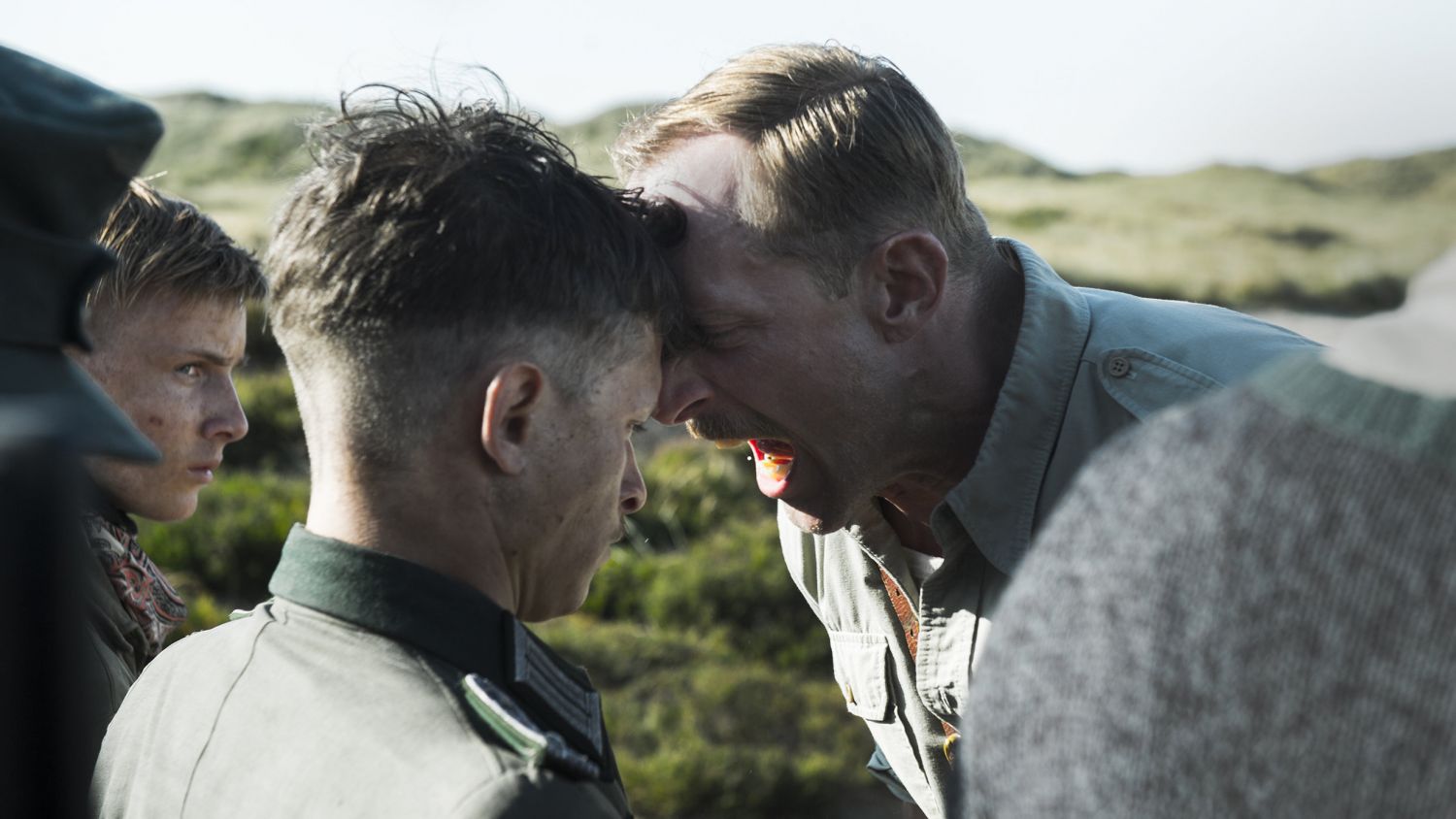
Taking place entirely on beachside farmlands in Denmark, Land of Mine takes a particularly intimate—and visually distinct—approach to war. The fighting may be over, but the film remains a tense and emotionally distressing, with all the pain and violence being carried over onto these German boys being forced to clear the beaches of live explosives with their bare hands. The relationship between these young men and their vengeful Danish commanding officer may progress a little quickly for some, but their volatile bond only emphasizes that rage isn’t meant to be felt forever, and that war is a destructive cycle that eventually needs to come to an end.

Shia Laboeuf and Stellan Skarsgård star in this true story about one of the greatest tennis matches in history: the 1980 Wimbledon final. The movie dissects what drives both competitors (one played by Laboeuf and the other by Sverrir Gudnason). Their personalities, considered opposites, are studied through their paths and how they got into tennis. All this leads to that one match, in this beautiful story of dealing with competition and fear of failure. Don’t stop watching when the credits roll, read what they say!
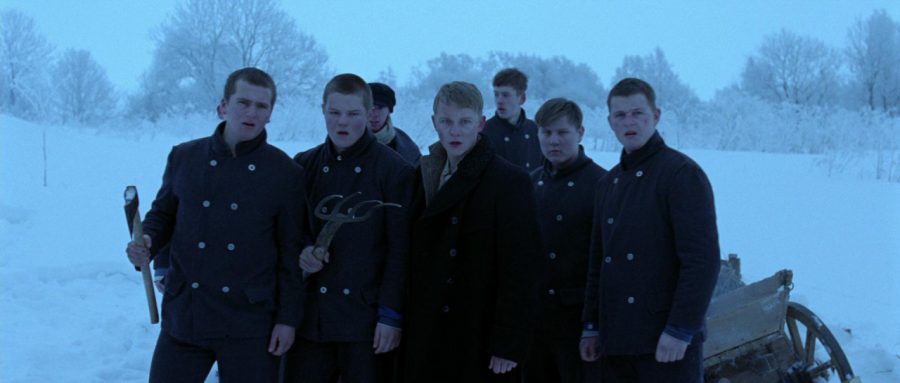
This gorgeous Scandinavian movie is based on a true story and stars the ever-reliable Stellan Skarsgard.
He plays the governor of a strict youth correctional facility in Norway in 1915. The arrival of a feared kid kickstarts events that are very famous in Norway but little-known elsewhere: an uprising within the facility that will eventually require the army to get involved. A strong movie with stellar (Stellan) performances.
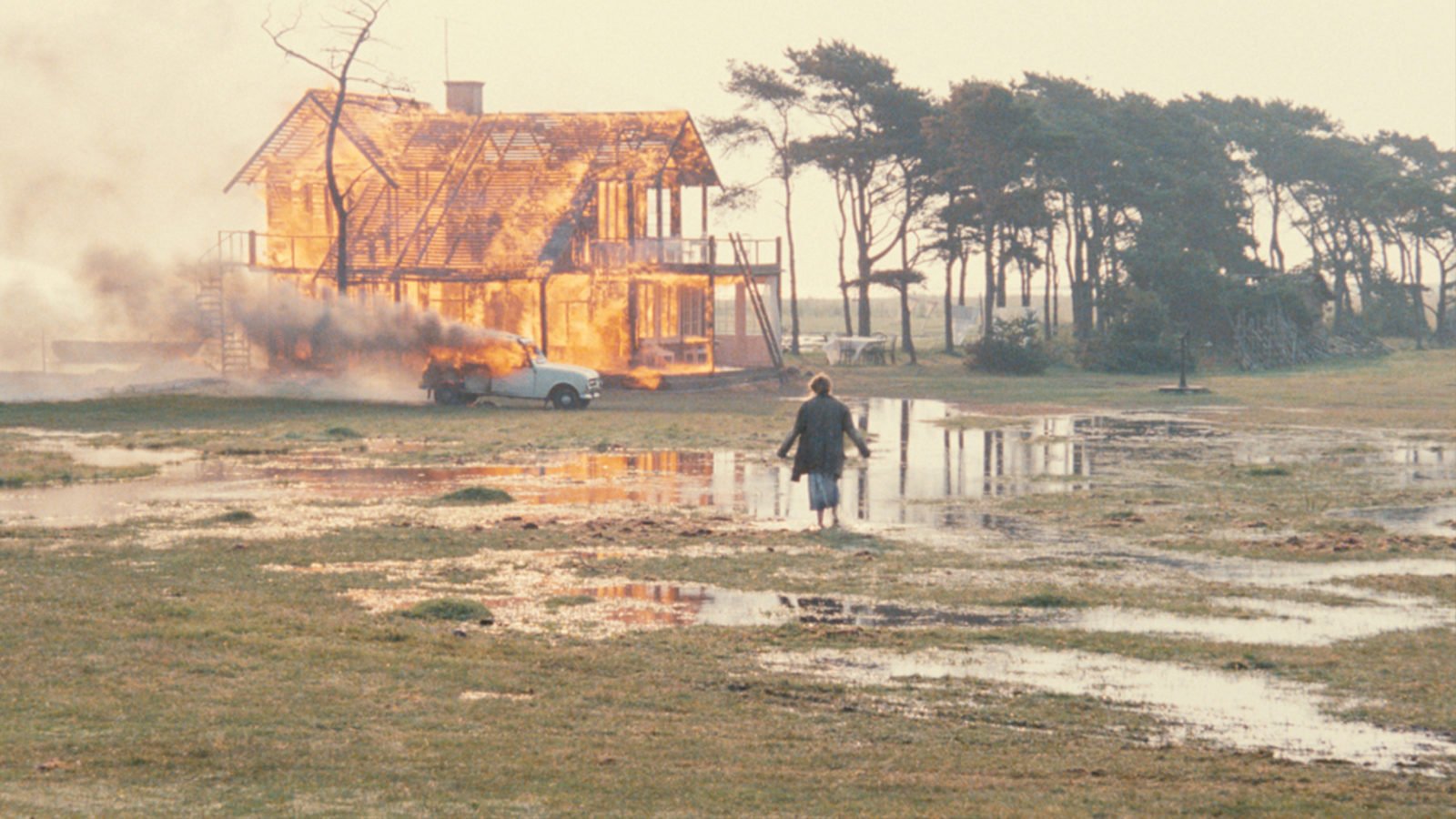
The end of the world, of course, forces people to contemplate one’s life purpose, the choices they made, and the opportunities they chose over others. Andrei Tarkovsky examines this idea in The Sacrifice– juxtaposing a hypothetical third World War with main character Alexander’s choices, the choices that led him to a successful acting career, but also led him to regret that he hasn’t done more to take action, until the deal he made with a cross between the Christian God and pagan sacrifice. The ideas are philosophically heavy, marked with Tarkovsky’s dreamlike imagery, long takes, and slow pacing, but it feels much more personal considering the sacrifice he made in leaving his family to create his last two films abroad. The Sacrifice is a masterful meditation on life itself, a deeply moving anti-war film that was a decent send-off of one of the greatest filmmakers ever to have existed.

Given the way this sprawling three-hour theatrical edit echoes the director’s real childhood, it’s easy to say that Fanny and Alexander is an autobiography. In some ways, it is. The dynamic with their stepfather was directly inspired by the director’s own father. In the hands of another director, it would have been easy to demonize the guy. But this is Ingmar Bergman directing his final film, so it should be no surprise that he meditates over the storytelling both father and son use in carving out their realities. At the same time, Fanny and Alexander encapsulated many of Bergman’s thematic concerns, clearly at his most personal.
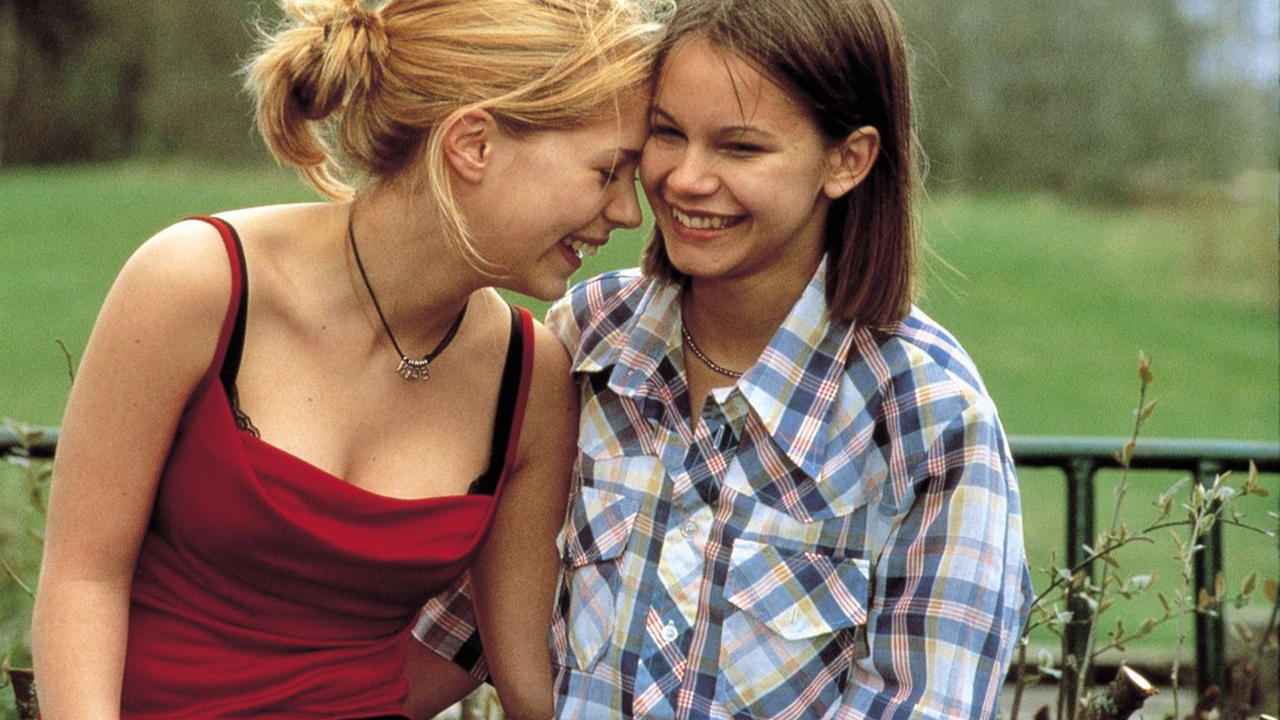
Set in the small town of Åmål, western Sweden, the debut feature by Lukas Moodysson (We Are the Best), is itself a metonymy for the bigger questions of life. It’s playful and dead serious at the same time, in the way it portrays teenager Agnes, who, after two years of living in Åmål, still hasn’t made any friends that would attend her birthday party. Instead, she spends her time typing away on her computer, poetic diaries and love confessions to a girl from school named Elin. She’s the popular one and therefore, out of reach. The amount of tension and escalating ambivalence the film conjures with just a simple narrative decision—a bet, a kiss, an apology—is palpable throughout the 86 minutes of its runtime. A perfect capsule of lesbian desire and first love, Show Me Love is a gem of a movie; one that would make you think Close was a tad overrated. Oh, and don’t forget to add the titular song by Swedish pop star Robyn to your Spotify favorites.
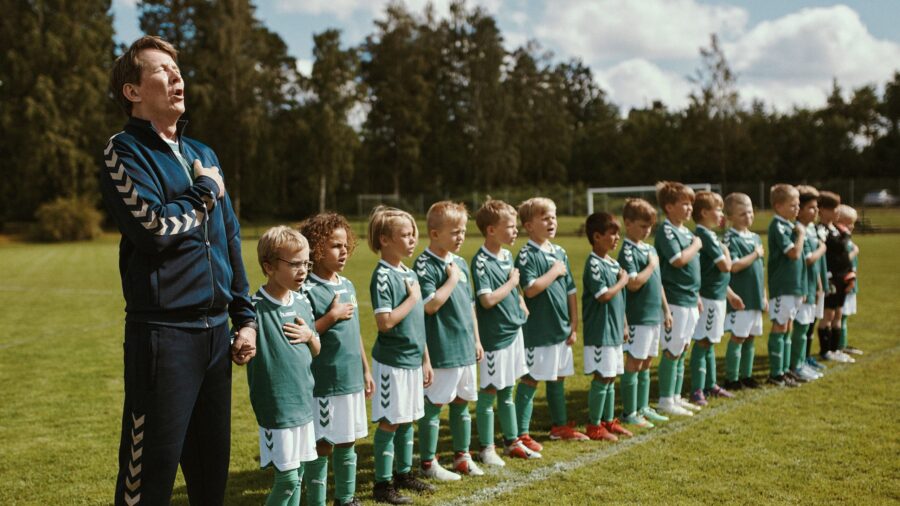
Director Thomas Vinterberg (The Hunt) reunites with Mads Mikkelsen to tell the story of four teachers going through a mid-life crisis. They’re not sad, exactly—they have homes and jobs and are good friends with each other—but they’re not happy either. Unlike the ebullient youth they teach, they seem to have lost their lust for life, and it’s silently eating away at them, rendering them glassy-eyed and mechanic in their everyday lives.
Enter an experiment: what if, as one scholar suggests, humans were meant to fulfill a certain alcohol concentration in order to live as fully and present as possible? The teachers use themselves as the subjects and the tide slowly starts to turn to mixed effects. Are they actually getting better or worse?
With an always-satisfying performance by Mikkelsen and an instant classic of an ender, it’s no surprise Another Round took home the award for Best Foreign Film in the 2020 Academy Awards.
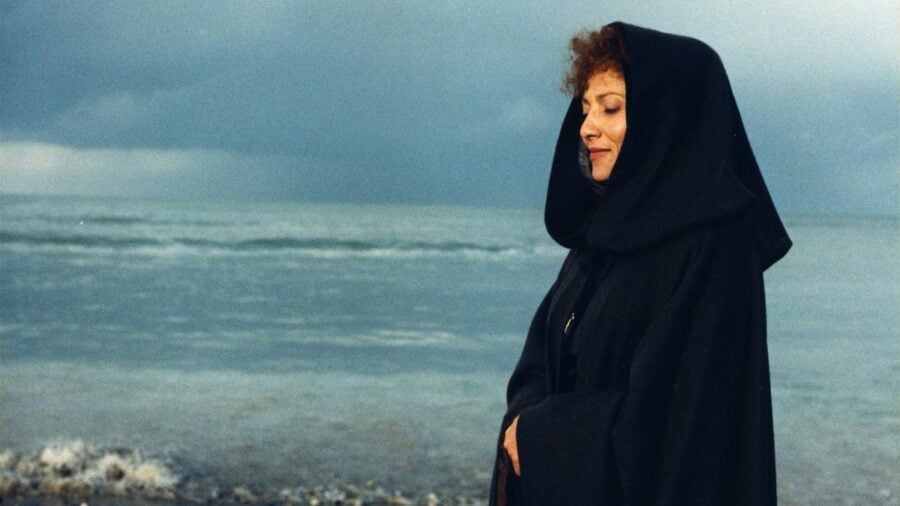
Sisters Martine and Filippa, daughters of a founder of a religious sect, live a simple and quiet life in a remote coastal village in Denmark. Throughout the course of their lives, they reject possible romances and fame as part of their commitment to deny earthly attachments. This is upended by the sudden arrival of a French immigrant named Babette, who served as their house help to escape the civil war raging in her country.
Babette’s Feast is an inquiry into simplicity and kindness, and whether these would be sufficient to achieve a life of contentment. The religious undertones perfectly fit with the film’s parable-like structure, where bodily and spiritual appetites are satisfied through a sumptuous feast of love, forgiveness, and gratitude.
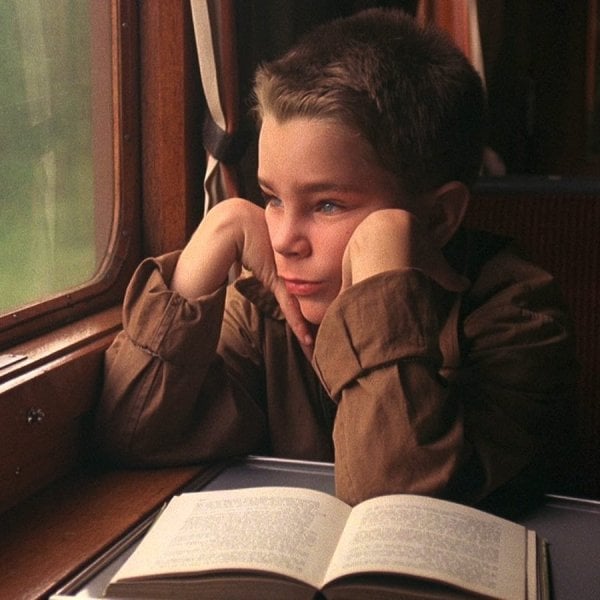
This Swedish surprise hit captivated viewers across the Atlantic because of one thing: the lead’s perspective. Okay, well, the performances are great, the time frame is nostalgic, and it’s grounded by the few incidents that could only happen in a small town. However, at the heart of the story, author and co-screenwriter Reidar Jönsson hones in on Ingemar’s uncertainty and the lack of control over his own fate. Between his mom’s illness, his separation from his older brother, the small space of his uncle’s house, and the fact he can’t even bring his dog, Ingemar is easy to sympathize with, especially as he tries to look towards the brighter side of life. But combined with his future self’s narration, My Life as a Dog cathartically pulls on the painful core memories that could only be made by growing up.
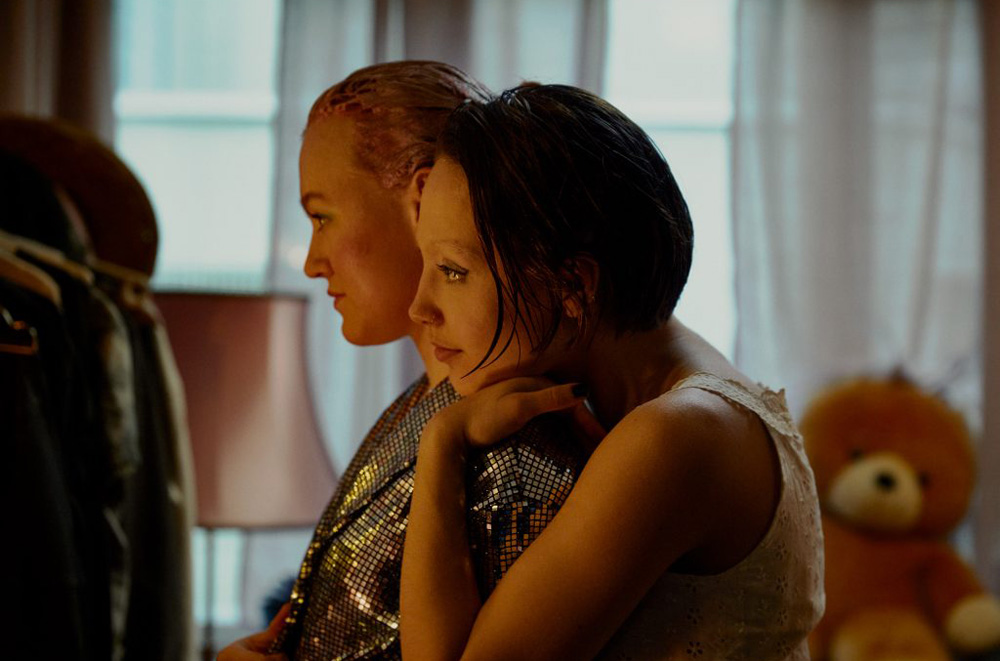
Understandably, Mimmi, Rönkkö, and Emma, the teenage girls who lead this Finnish coming-of-age drama, are bursting with emotional urgency. On the cusp of adulthood, they plunge into house parties and romantic affairs in the hope that exploring love, sex, and adventure leads them closer to being self-aware adults.
Of course, that’s a lifelong process, but they don’t need to know that just yet. For now, they’re explosive and ecstatic and awkward and angry. They’re at a point in their lives where falling head over heels is still an endearingly fresh experience and not a frustratingly repeated mistake.
The film is intense in this way, but it’s leavened by a beautiful naturalism that’s seen in the young cast’s performances, the setting’s soft lighting, and the camera’s boxy ratio and grainy finish, the latter of which recall a disposable camera capturing the indiscriminate moments shared between teens. Girl Picture is an intimate and authentic portrait of girlhood—see it if you can.
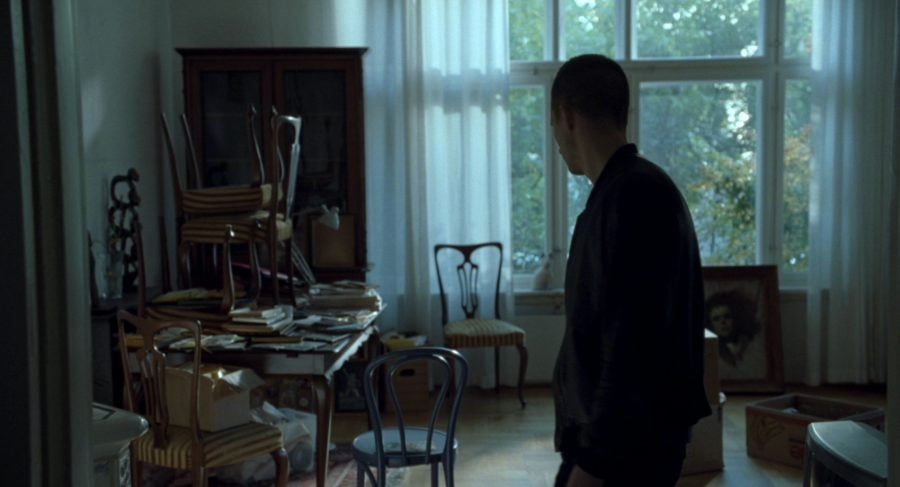
This masterpiece from Norwegian director Joachim Trier is a clear-eyed movie that takes place in one day in the life of a 34-year-old. Anders, a recovering drug addict, gets to leave his rehab facility for the first time to take a job interview. He visits friends, tries to meet his ex, and goes to the interview. With every interaction, you get to know him more and understand that what he’s going through is shared with everyone he meets. At 34, Anders feels it is too late to turn his life around, and so do his friends. He just happens to be a drug addict.
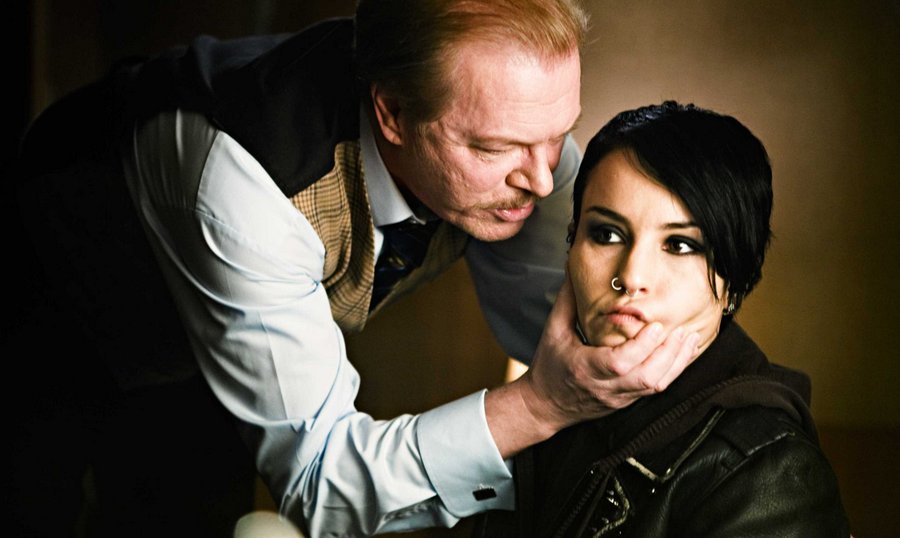
The original Swedish mystery thriller that was later remade by David Fincher. It’s the same story of a wealthy man hiring a journalist and scrappy hacker to solver a murder, but told better. This version is slower, has more attention to detail and pace. In casting, authenticity triumphs over good looks. In staging, aesthetics are given as much importance as thrills. And in the story, intelligence wins over plot. This gives the main character of Lisbeth Salander (played by Noomi Rapace) better space to deploy her full mysticism and enigmatic nature. Danish director Niels Arden Oplev masterfully brings everything together to make for a movie that will forever be remembered.
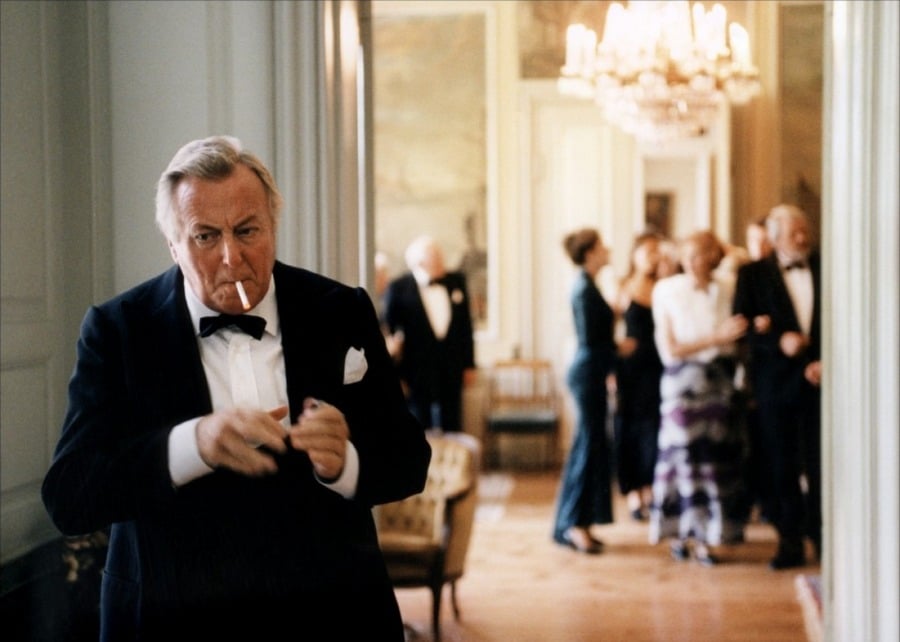
Whilst a classic in some circles, Festen is many things, but it’s definitely not mainstream entertainment. It was shot by Danish director, Thomas Vinterberg, who founded the Dogme 95 movement together with Lars von Trier in 1995, which sought to put the auteur director back at the heart of filmmaking, as opposed to the power of the studios or special effects. This was the first movie to come out from that group. You thought your family was messed up? Think again. This macabre, Poe-esque, gut-wrenching tale of debauchery will leave you feeling confused and slightly nauseous. This effect is exacerbated by Winterberg’s directing style and the crazy camerawork of Anthony Dod Mantle. With a highly volatile tone and a great cast, the effect Festen has on you is not easily shaken off.
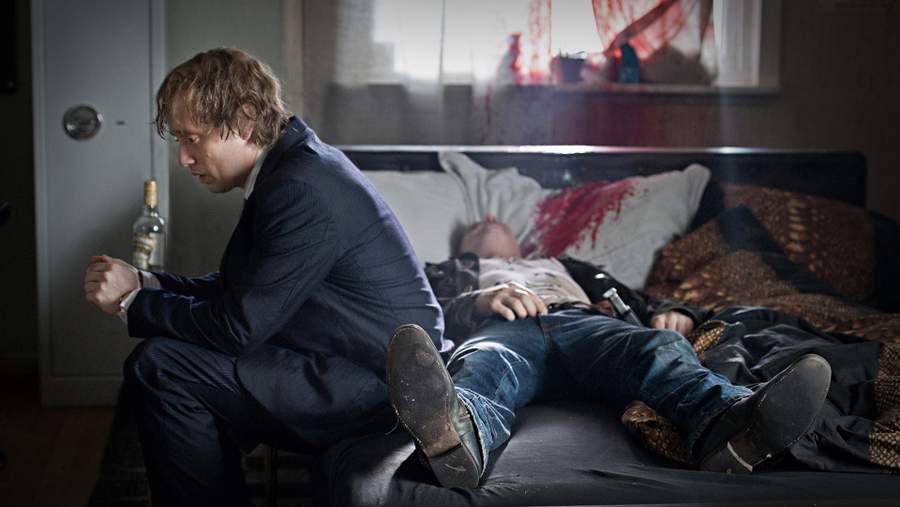
Fasten your seatbelts because this nasty little chase film will jerk the wheel when you least expect it, featuring balls-to-the-wall action and lots of Norwegian humor – dark humor that is. Based on a novel from the country’s most famous crime writer, Jo Nesbø, Headhunters is brutal, insane, and incredibly good. This twisting, turning thriller tells the story of a corporate recruiter (Aksel Hennie), who has a secret side hustle as a nightly art thief. He ends up being pursued by the charismatic Clas Greve, a Dutch businessman played by none other than GoT-star Nikolaj Coster-Waldau. And this plot summary is as far as you will get without the whole thing swerving into another direction. Headhunters does not slow down unless it wants to destabilise you further with simmering suspense. Like a Lars von Trier on speed, expect all the raw colors, emotion, and slightly off-kilter characters you want from a Norwegian production – and brilliant entertainment!
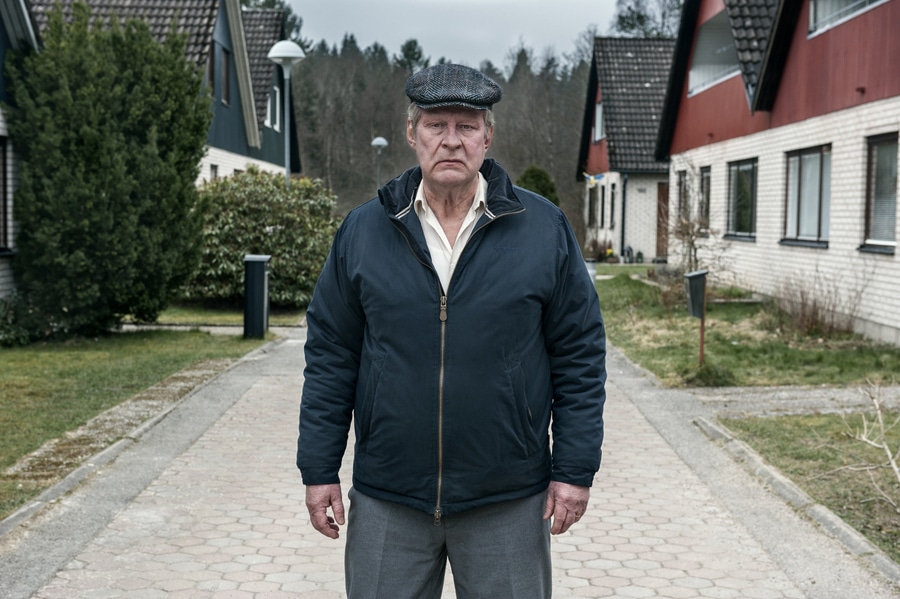
Based on Fredrick Backman’s 2012 best-selling book of the same name, this Swedish hit comedy-drama introduces us to Ove, an elderly man who feels like his life is over. After losing his wife, the short-fused retiree spends his days grumpily enforcing block association rules in his neighborhood. He is your typical unhappy, old neighbor, somebody you would try to avoid. One new family does not give up and befriends Ove, played by an impeccable Rolf Lassgård, despite his best intentions to put them off. As the plot unfolds, however, you learn more about the story behind the man, and, in classic walk-a-mile-in-his-shoes fashion, start to find him rather loveable. After all, nobody is born grumpy and cynical. Naturally, this is a sweet and sentimental film. But an amazing lead performance and a charming, darkly funny script rescue it from drifting too far off the shore. The result is a wholesome, fun, and thoughtful dramedy with a beautiful message.
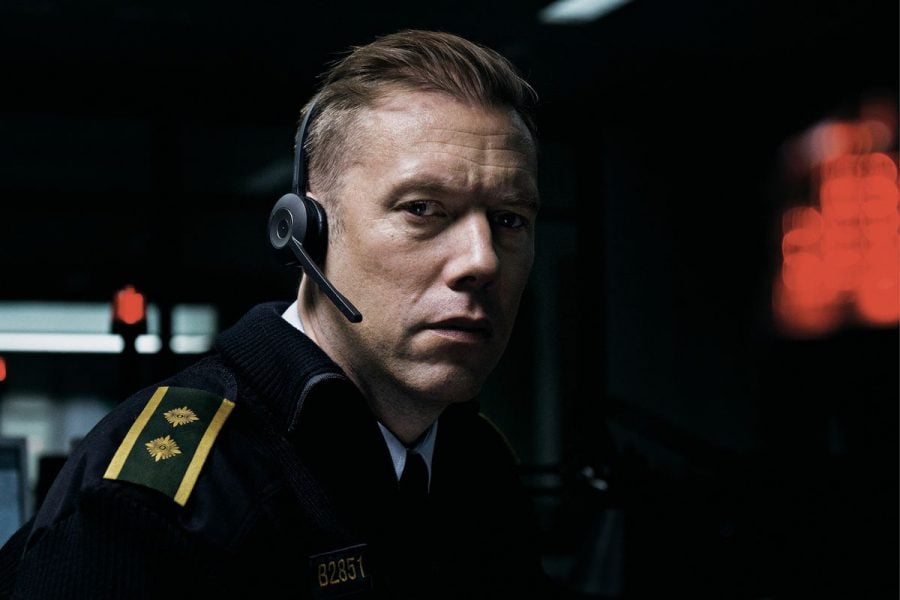
Before you press play on this movie, we highly recommend you take a few very deep breaths. This 2018 thriller is wound so tight, you will need the extra oxygen to get through it without fainting. In his directorial debut, Swedish-danish filmmaker Gustav Möller uses very little in terms of resources to create this breath-taking atmosphere. While The Guilty feels like it was made on a $100 million budget, all it physically brings to the table is one man in a dark room. It plays with our imagination instead of blinding it with special effects. Similarly, the plot is also short and sweet: a police officer is temporarily sent to do emergency dispatch, when he receives a call that turns an ordinary shift into a hell ride. This is all we are going to give away before you’ve completed your breathing exercises. The movie’s minimalist approach is held together by great acting from Jakob Cedergre, a screenplay to match, and incredible sound design. A real white-knuckle ride.
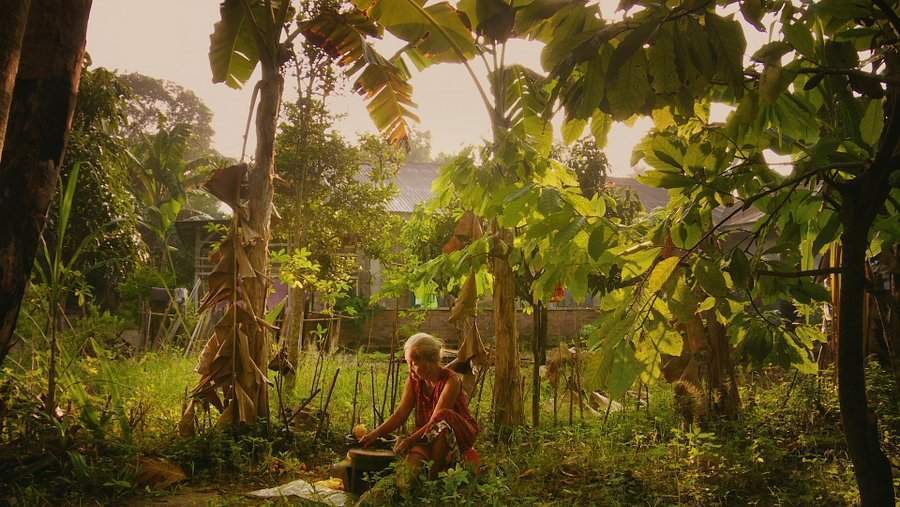
A follow-up/companion piece to the award-winning The Act of Killing, The Look of Silence is another compelling documentary from Director Joshua Oppenheimer. Both films aim attention at the Indonesian Genocide of 1965-66, when the military government systematically purged up to one million communists. While the first film’s focus was on the culprits and on providing facts, the second one lets us meet the victims. One victim in particular: a soft-spoken optician named Adi Rukun, who meets with various members of the death squad who murdered his elder brother Ramli, under the guise of giving them an eye test. As he questions them about the killings, the murderers, again, show little remorse and eagerly provide the lurid details to the many executions. It’s a stunning and provocative look at the legacy of historical mass killings, along with the insidious propaganda that provokes them, and continues to justify them to younger generations. A testament to the power of cinema to remember the forgotten.
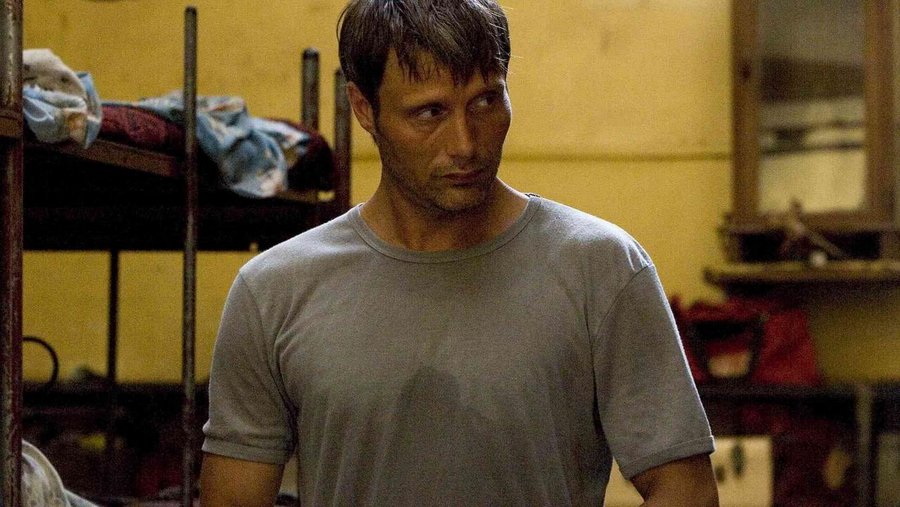
Danish films somehow have a unique approach to emotions that are rarely matched and this Susanne Bier-directed drama is no exception. Its protagonist is Jacob Peterson, a driven idealist played by Mads Mikkelsen, who runs a fledgling orphanage in India. Close to giving up, Peterson returns to Copenhagen to meet a billionaire, who is offering to fund his charity project. However, there is a dark secret at the heart of this relationship, throwing Peterson into disarray. This elegant and Academy-Award-nominated Danish film has it all: fantastic cast, great direction, and a few special ingredients that turn a good drama into a thrilling one!
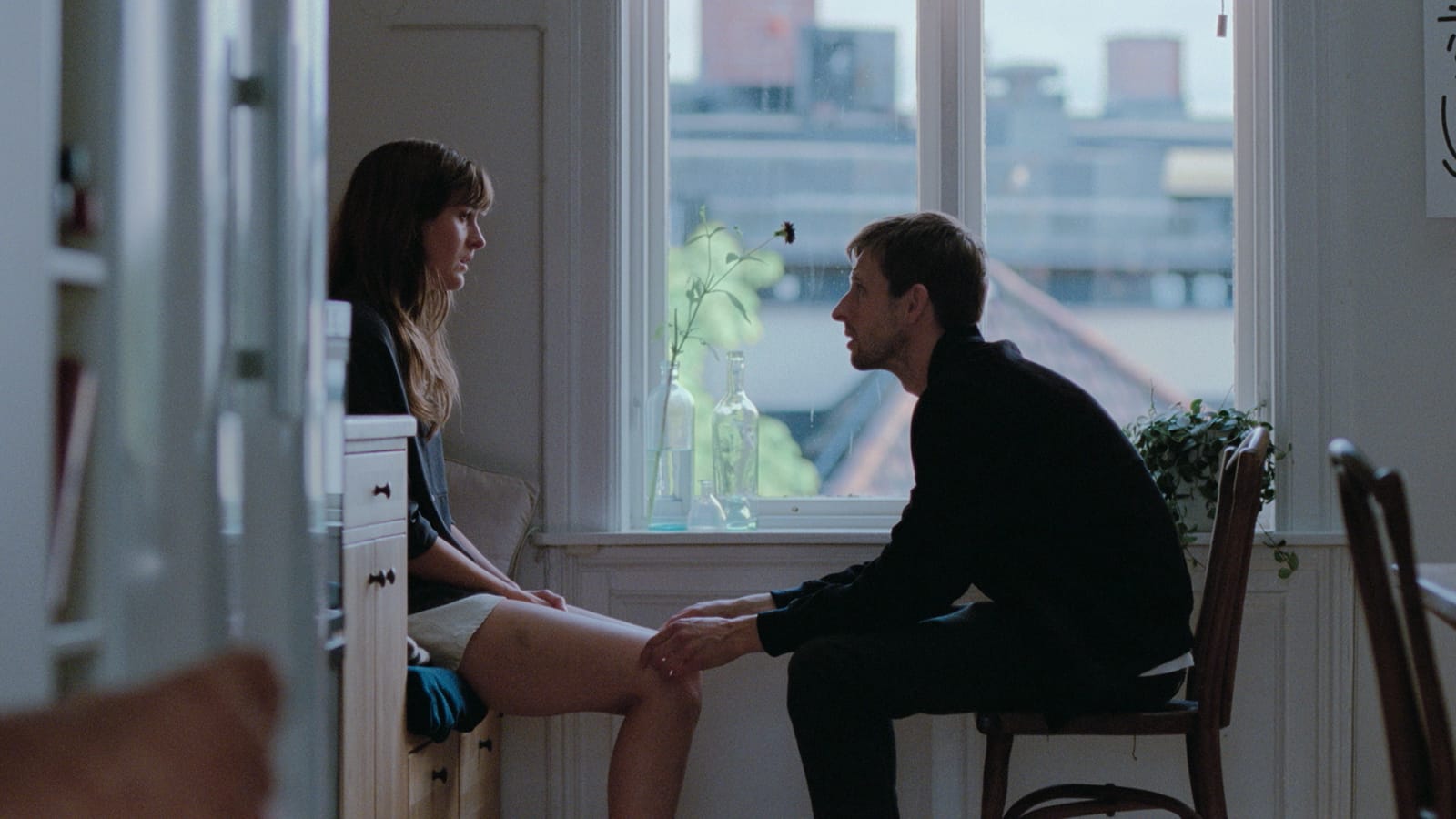
The film opens with Julie in her early twenties, longing to pursue a career in medical school. But after briefly testing the waters, she switches over to psychology, only to drop completely out of school and transform her hobby of photography into a professional career. This indecisiveness carries over in most aspects of her life, including and especially in romance, where impulse and desire drive her to run after what she believes to be love. The movie follows Julie as she navigates adulthood in modern Oslo—at once a specific yet universally relatable story about the growing pains of growing up.
With The Worst Person in the World, Joachim Trier scores again with another life-changing Norwegian drama about longing, love, grief, and finding your place in the world. His films can be quite sad but amidst all the drama, moments of happiness and hope are scattered throughout, as it is in real life.

It comes as no surprise that former Bond villain Mads Mikkelsen won Best Actor in Cannes for delivering on this challenging role. In this merciless thriller by Danish director Thomas Vinterberg, the ice-eyed actor plays Lucas, an out-of-luck high school teacher struggling to start a new life. After a bitter divorce, he returns to the close-knit community he grew up in to work as a kindergarten teacher.
A few weeks before Christmas, a child from his class, who has an innocent crush on the popular teacher, hints to a colleague that he had exposed himself to her. The young girl’s intimation galvanizes the small hunter’s town into a witch-hunt that leaves Lucas’ life hanging from a string. Trapped in the lies, the more he fights back, the more irrational the mob becomes. In all its brutal honesty, The Hunt is one of those rare thrillers that will haunt you for days. Extraordinary and thought-provoking!


